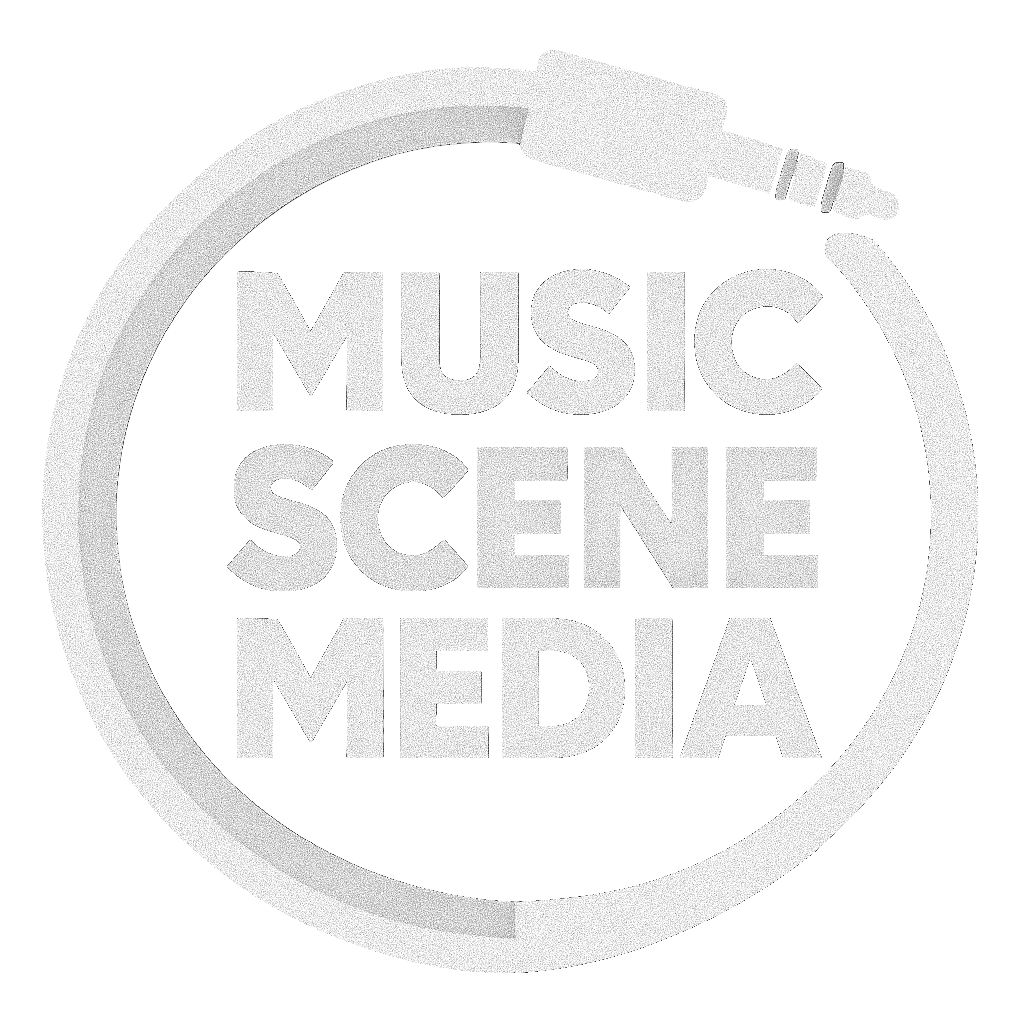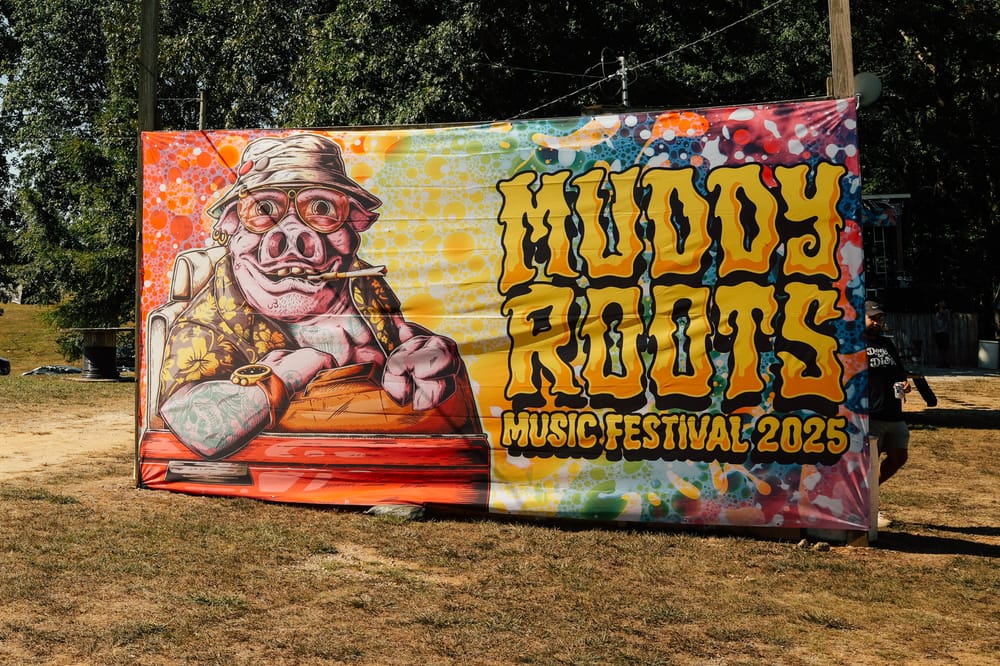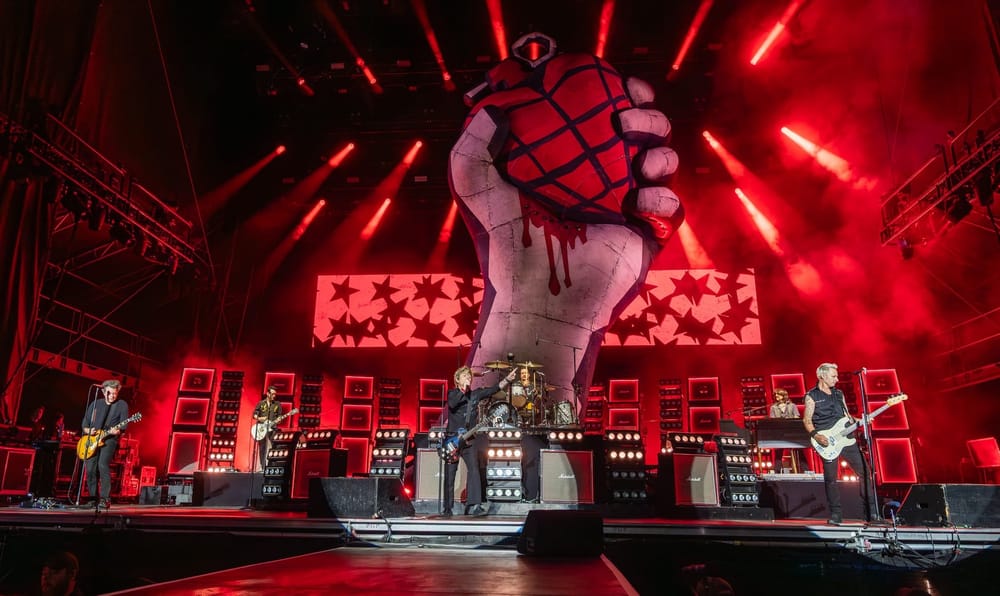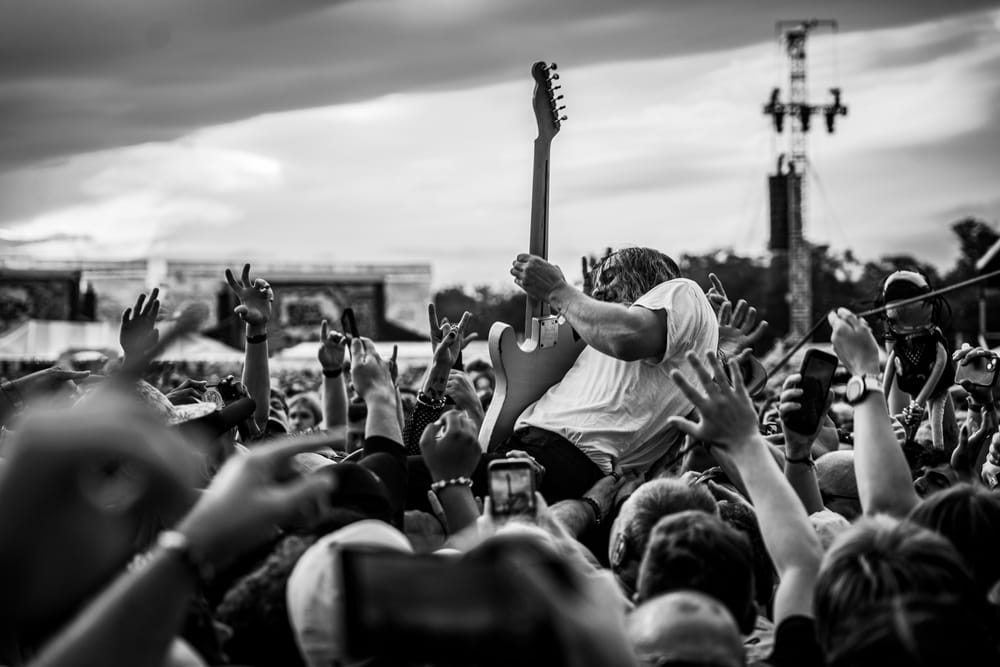Hidden away in the college town of Cookeville, Tennessee, is a little spot where thousands of people from across the United States, and even the world, flock to every year. Far away from the purple flags of Tennessee Tech, stores you can waste an entire paycheck in, and the overwhelming smells of Food Row is a field. Obviously, a field is not a rare sight in this part of the world, so what makes Junebug Ranch so special? Well, it is the home of the Muddy Roots Music Festival, a festival as DIY as so many shoppers at the local Hobby Lobby yearn to be. Despite its humble beginnings, or perhaps because of them, Muddy Roots has become a home to many people who, in a world rallying against the outcasts and weirdos, found a paradise to be themselves.
Created by Jason Galaz in 2010, Muddy Roots Music Festival has hosted many amazing bands that range from bluegrass to punk, and everything in between. Even some that can't have a label stick to it. These acts didn't stop playing only in this field, however. From Buenos Aires, Argentina, to Dorset, UK, the spirit of Muddy Roots grew further out as the years went by.
I was born and raised in the neighboring town of Sparta, and yet, I never heard of this festival that seemed like an oasis for a young queer punk like me. That is, until the name Muddy Roots came up in conversation with my tattoo artist. Through the pain of the needle hitting my skin, he told me of this field and the amazing people who attend. I was all in.
Thursday
As I followed the road signs reading 'Muddy Roots this way' that evening, the nerves ramped up worse than on my first day of freshman year of high school. I could feel the sweat coating my palms, my heart beating, ringing out in my ears, and my mouth running drier and drier. No amount of Queens of the Stone Age blaring through my ears could help. This was my first press pass and my first time at a festival by myself. However, as soon as I was greeted by smiling volunteers leading me into the small entrance on the hill, I knew I was in good hands and that this was going to all be okay.
As soon as you drive past those gates, you feel on top of the world. Depending on the day you arrive, all you can see for miles is tents, campers, and cars down below you on the hill. Waiting in line, you have a perfect view of the main stage, appropriately named 'Wood Stage.' I felt my breath catch in my throat at where I would be staying for the weekend. I was quickly snapped out of the shock by the need to keep the quick-moving line going. Through the entrance and a wristband on me within minutes, I didn't even get a chance to pull up the map to find where my camp for the weekend was. The realization that I was actually doing this didn't hit me till I was driving through the vast field, witnessing the many types of people all around me. I would be lying if I said I wasn't in shock. Coming from a town where a Slipknot t-shirt would result in weird looks, this was a different world despite being just a quick 45-minute drive from home. I finally saw people like me, who I want to be.
After the slight panic of getting lost, which is no fault of anyone but my own horrid sense of direction, I found myself in the back field. Just behind the treeline is the "quieter" camping area, but it is also home to Camp Boneyard. A camp where the stage is always open for anyone who wants to play. I let the music lead me to the couches filled with my campmates. The wrasp of the banjos and washboard filled my ears. This was when I found out I was going to be camping with two of my favorite bands that I discovered while preparing for Muddy Roots, Blossomin' Bone, and Between The Backwoods. Trying to calm down my fanboy nature and "act cool", I found myself sitting down in a trance listening to the music. I was enraptured by the talent surrounding me. A smile grew on my face, and it never left. I don't think it has since.
The festival's starting ceremony was soon to start, an Aztec Ceremony to begin the weekend and bless the land. Before the blessing, the folks at Punk Rock Saves Lives led a lesson on Naloxone — when to use it, how to use it, and how important it is to use it. Naloxone is an emergency treatment used for opioid overdoses, and it is beyond important to carry, especially at music festivals. As they came through the crowd, handing out the many forms of the life-saving drug, I felt the familiar sense of safety fall around me. The safety of everyone attending was priority number one for the folks behind the scenes at Muddy Roots.
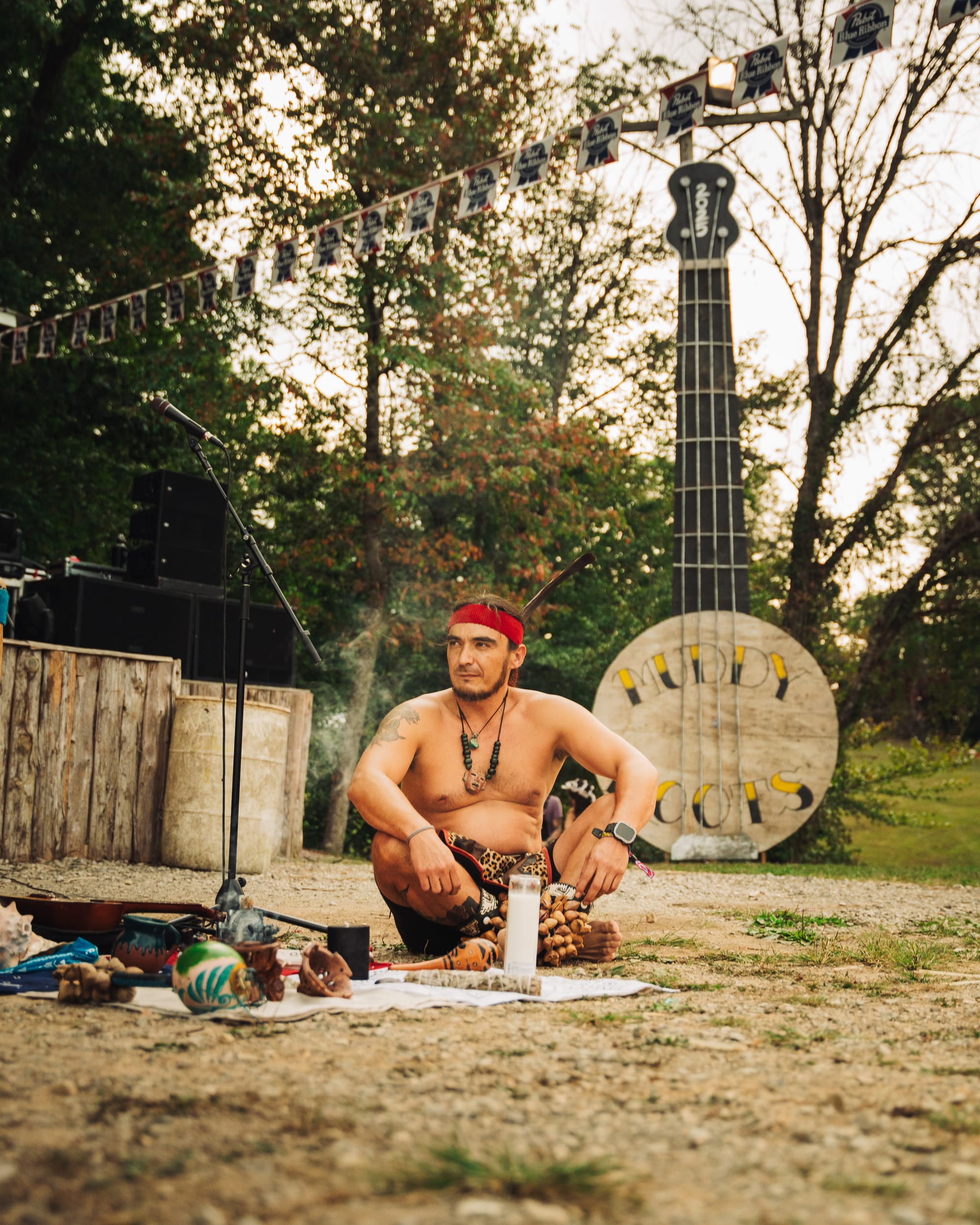
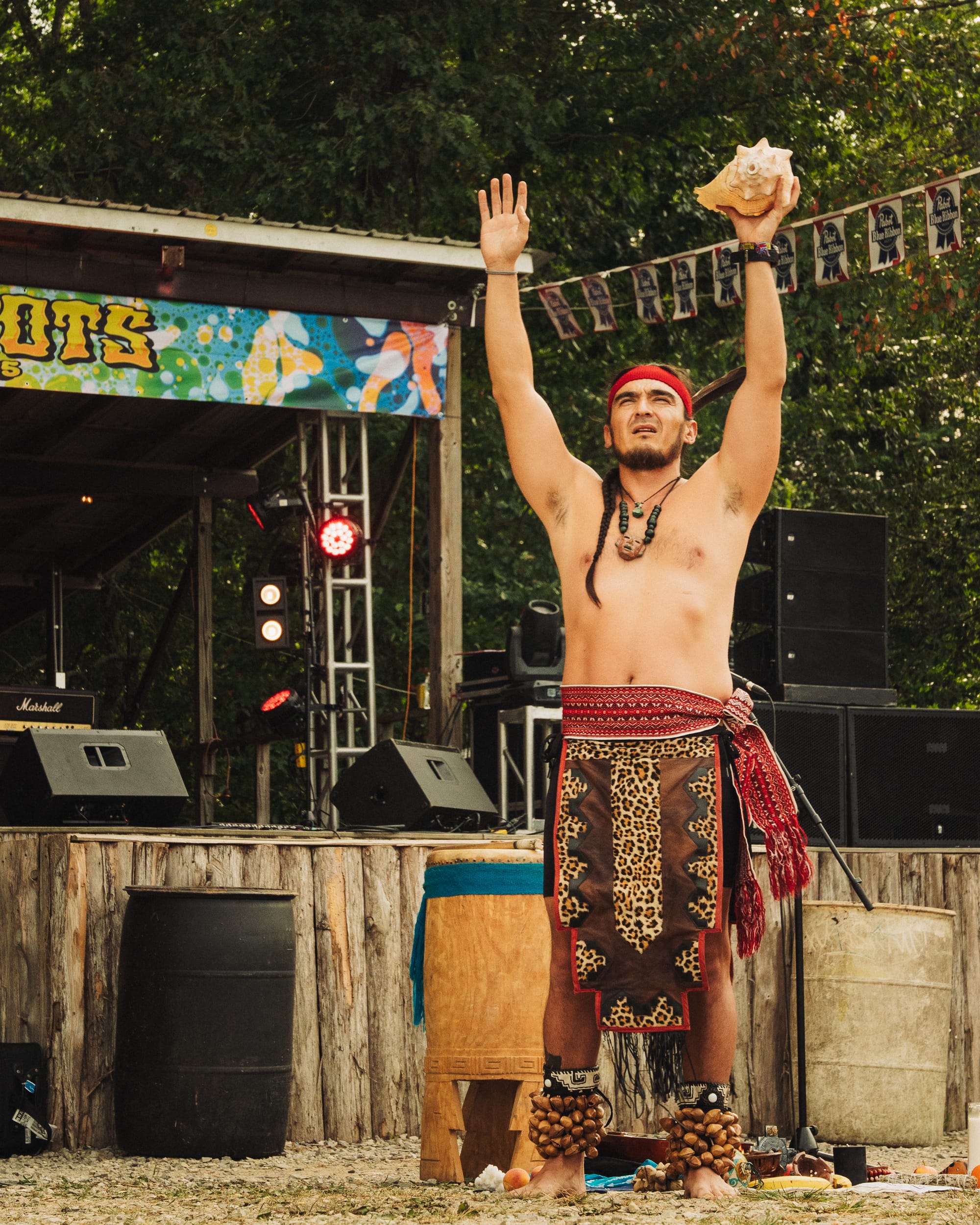
Aztec Ceremony Shot by Chase Abigt
As the sun fell behind the horizon, taking the warmth with it, the music continued to fill every square foot of the field. On the terrifying golf cart drive back to 'Wood Stage' for Pentagram String Band, I made the greatest mistake of telling my tattoo artist, Jimmy, and Amanda of Blossomin' Bone, my goal for the weekend. I wanted to finally face my fear and get into a pit. As we raced up the slope to the stage, the band had already taken the stage. The bone-rattling sound of the stand-up bass shook my core and filled me with that confidence I continued to hold all weekend. Turning to me in the crowd on her way to the pit, Amanda held out her hand and asked the terrifying question, "Are you coming in?". I couldn't tell if it was the energy of the crowd all around me, or the worry of acting like a wimp in front of people I deemed "the coolest", but I found myself grabbing her hand and saying screw it. One thing I learned that night is that if someone falls down, you pick them up, brush them off, and make sure they are okay. I learned that the hard way.
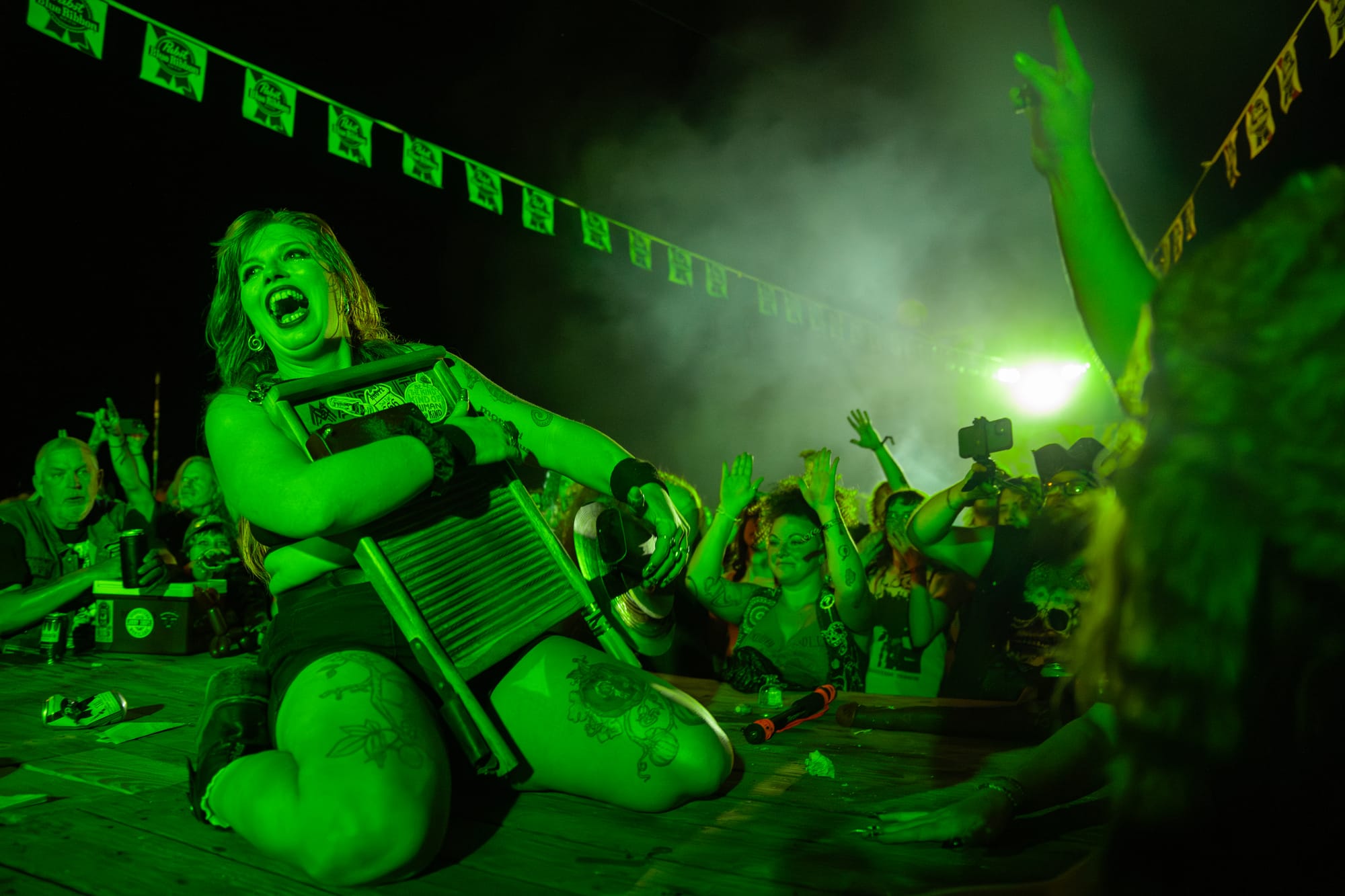
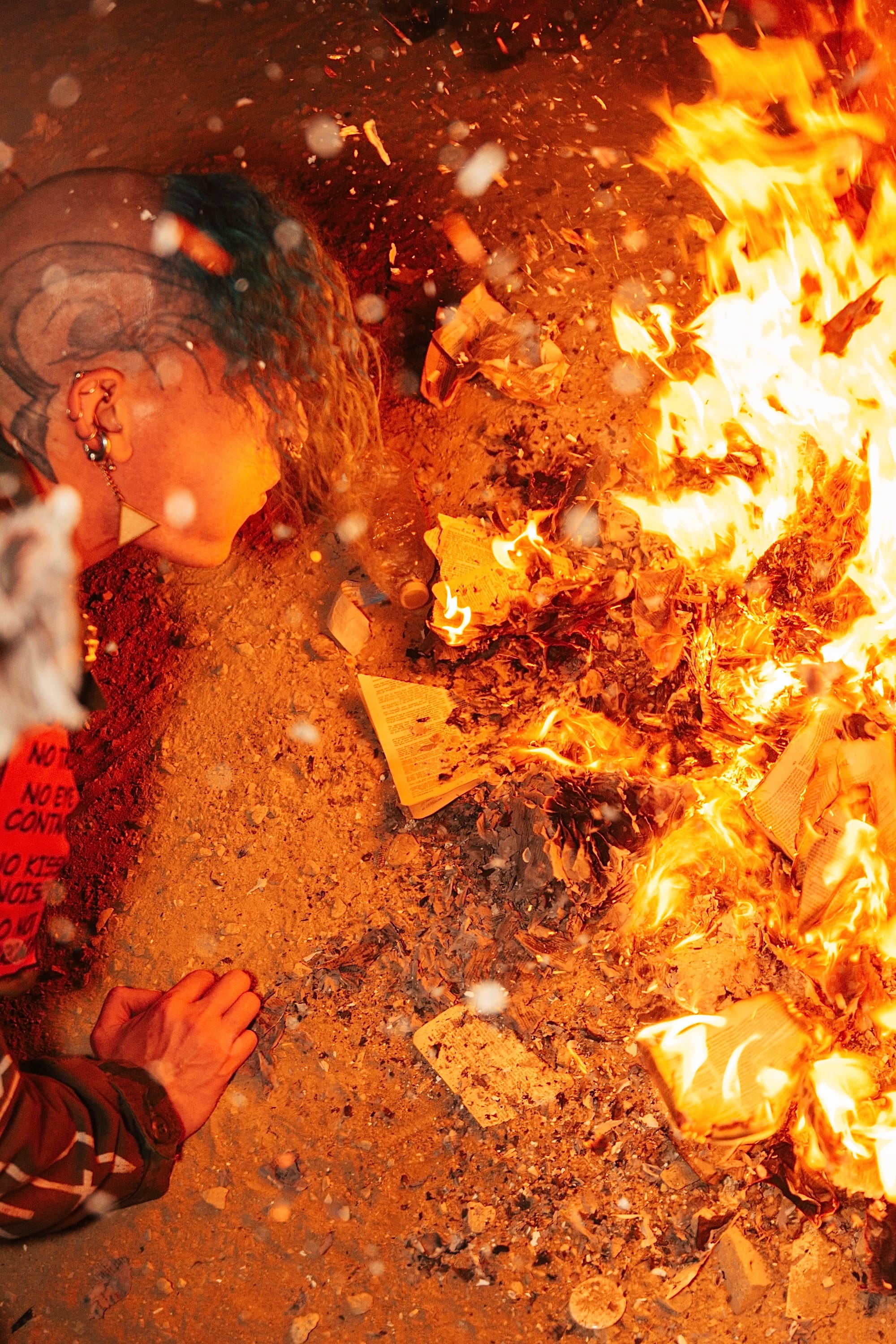
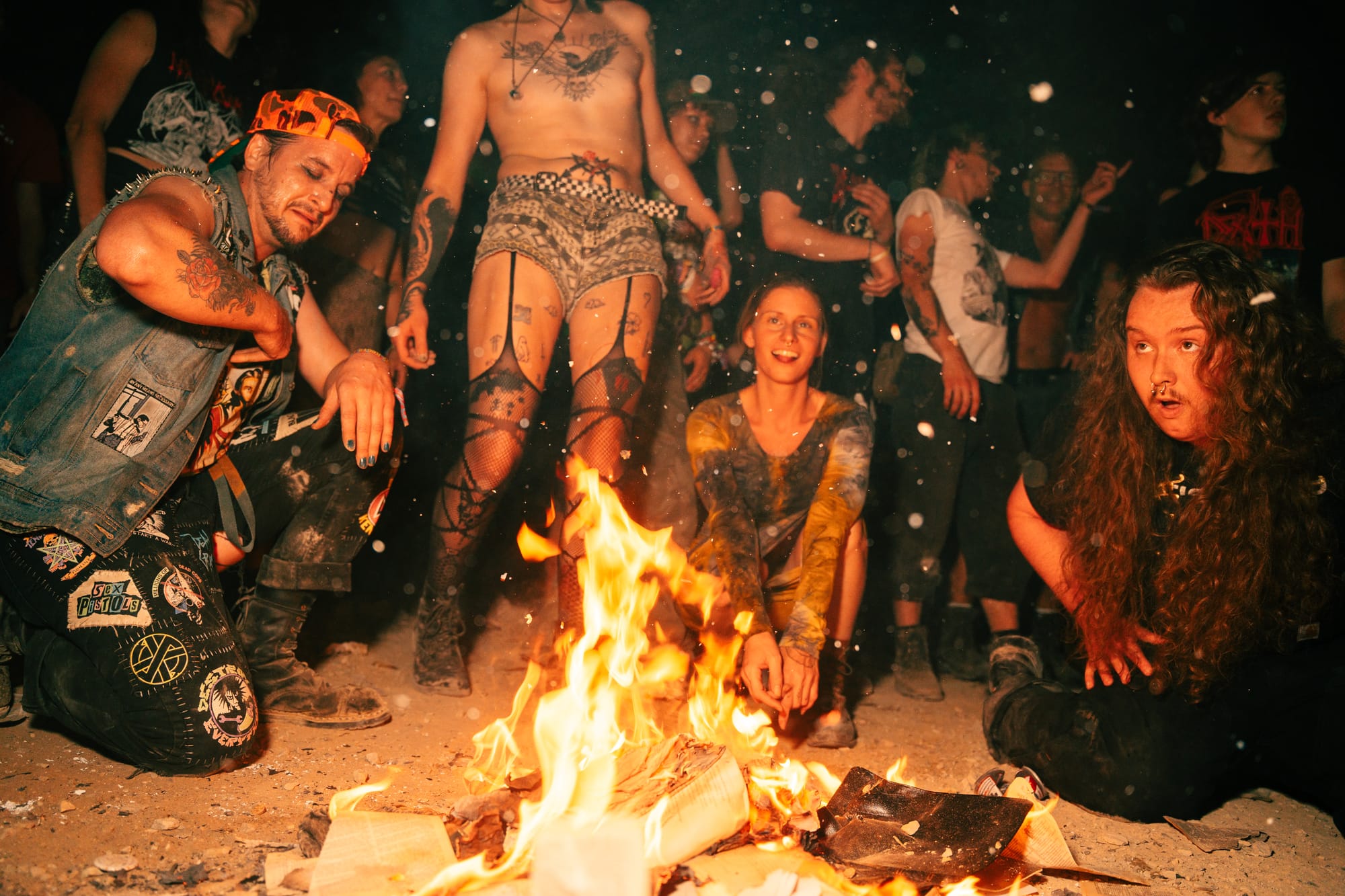
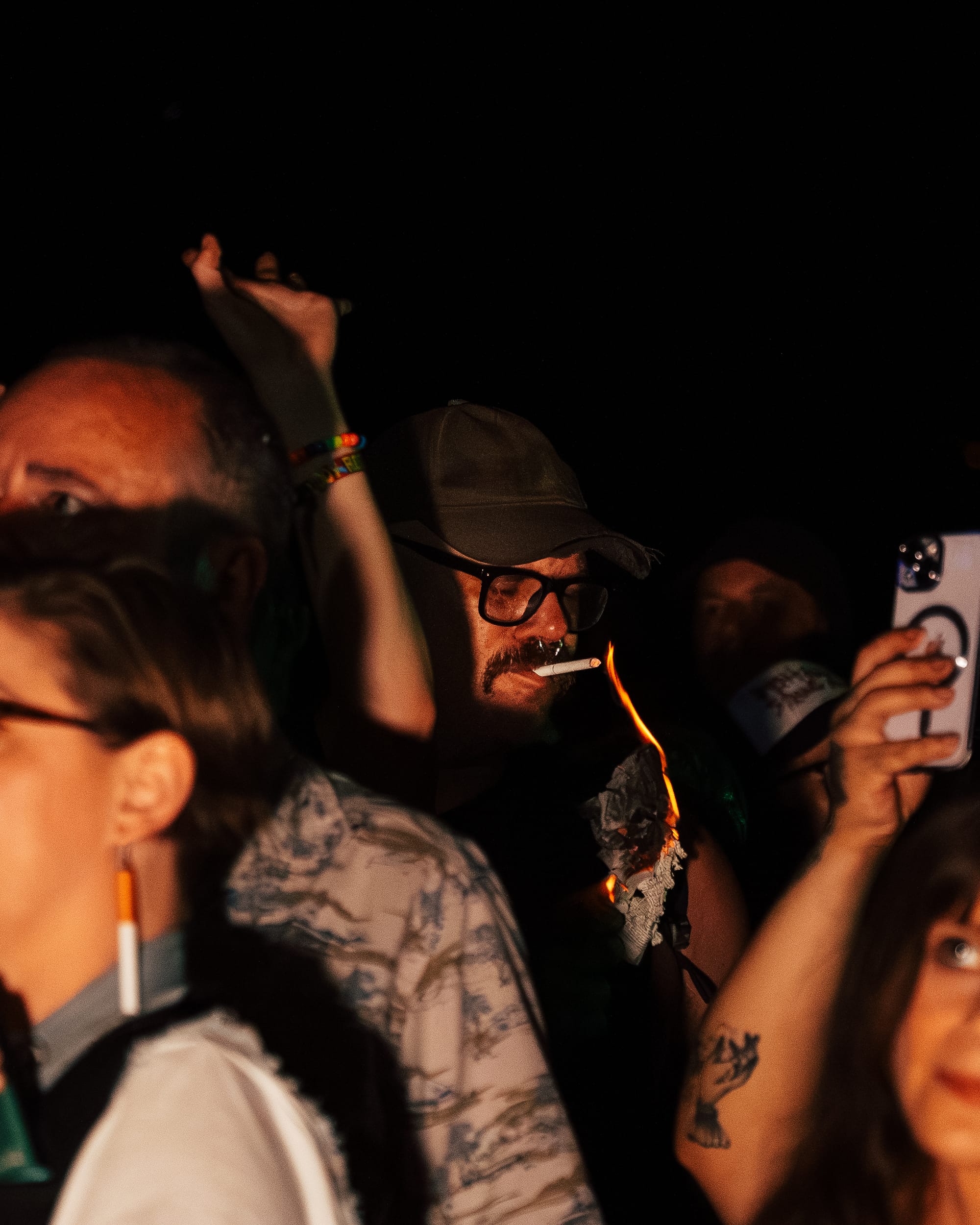
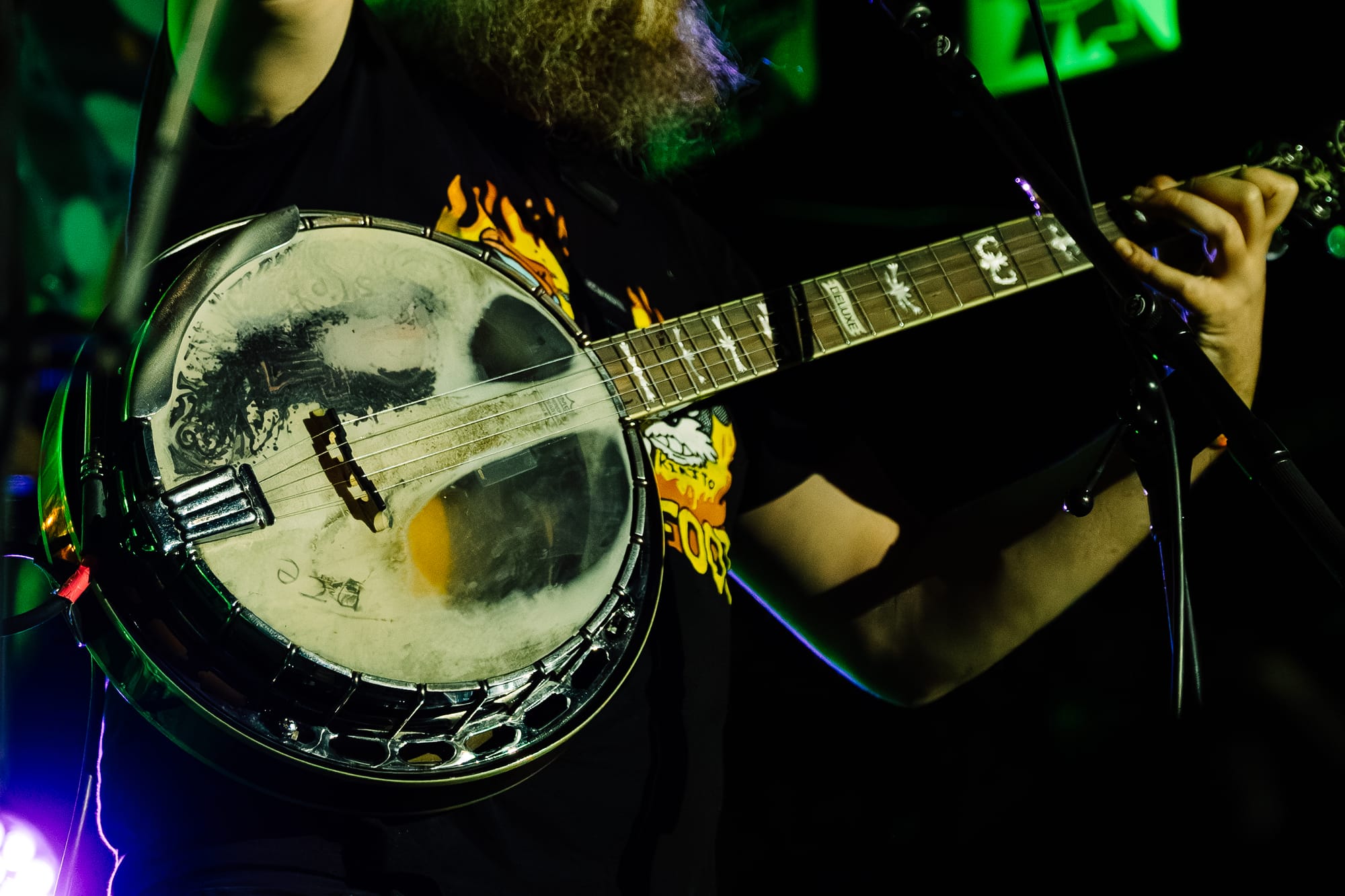
Shot by Chase Abigt
Friday
Trying my hardest to combat the homesick bug crawling into every inch of my brain, I found a sanctuary in between the leather couches and the odd comfort of the pull-out chairs of Camp Boneyard. As I reread my interview questions for the millionth time, the familiar songs of Between The Backwoods played behind me, songs that were burned into my memories thanks to the many nights driving home with only my Spotify keeping me company. Many people have described the moment when their brain clicked and they knew they were alive. They describe an out-of-body experience where you can swear you know all the answers in the world. This was my moment. The moment when it all became real. I was at Muddy Roots doing work for my dream career, surrounded by people who shared that same spark I had held since I was that bright-eyed child, hearing the soundtrack for "O Brother, Where Art Thou?" for the first time. It was a simple practice for them, but this was where I knew deep in my heart that this was where I was meant to be.
Saturday
The sound of music fills my ears from the moment my eyes open and adjust to the light peering into my tent. The biggest day yet was starting loud, and I couldn't have been happier. Dragging my body to the main camp for breakfast with my little notebook of interview questions, I was slowly preparing myself for my first in-person band interview. The hours flew by, and soon the camp was greeting its old friends once again, Triangle Fire.
Triangle Fire
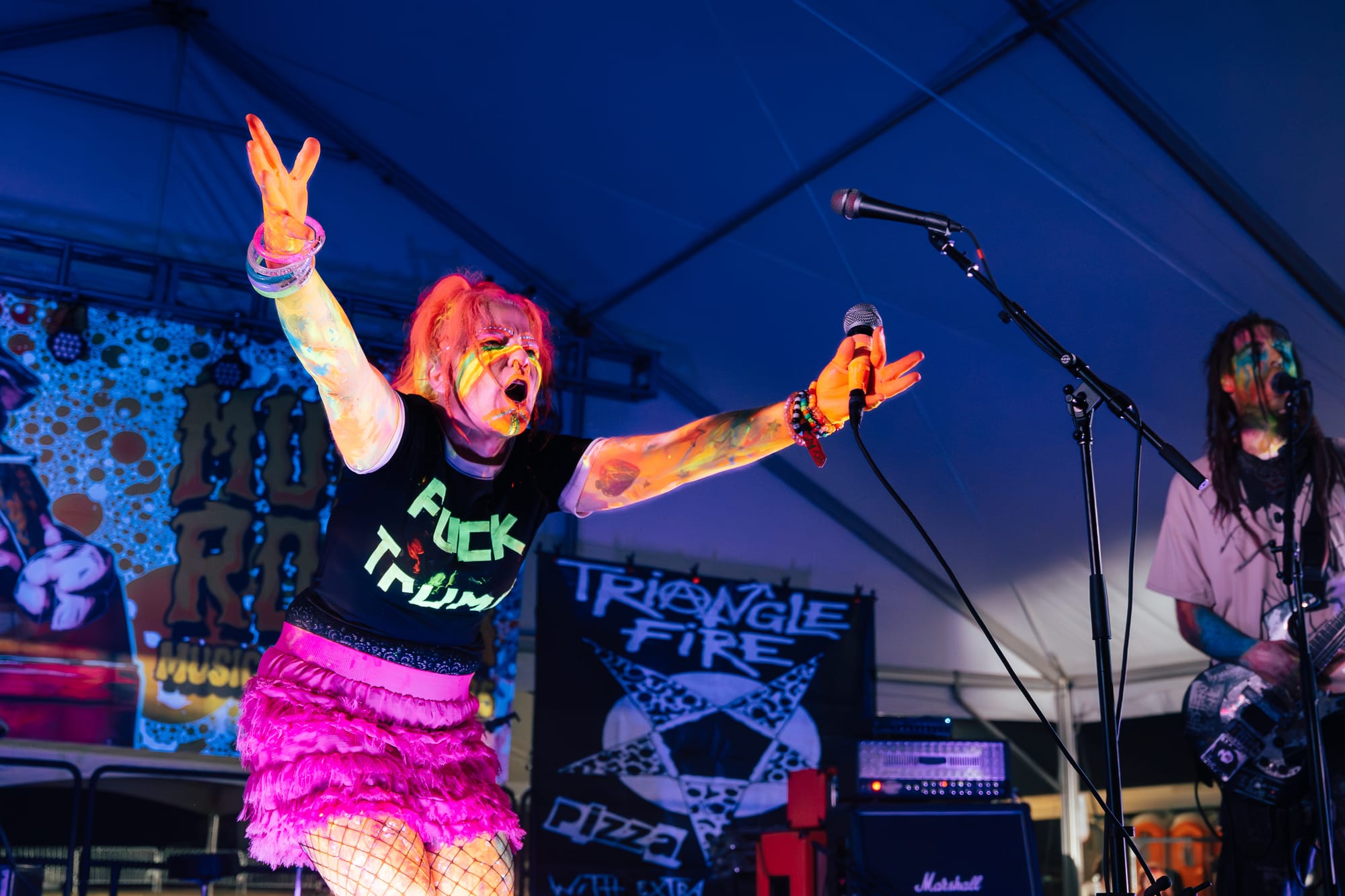
Hailing from the great state of Georgia comes Triangle Fire. The four-piece band was formed by the husband-and-wife duo of Nick Hall and Tandi Murphy-Hall out of Athens, Georgia. Describing themselves as "pizza punk with extra-thick crust", this band teaches its diverse audience the importance of being there for each other, and the true essence of 'punk'.
I had the honor of sitting in the Boneyard with Triangle Fire — well, three-and-a-half of the band — the day of their first official cassette release. Tandi (vocals), Nick (guitar/vocals), and Guido (drums) came to camp to talk with me about strong women, being punk today, and what to expect in the future:
MSM: Who were your earliest influences, and how did they shape Triangle Fire's sound today?
Tandi: My earliest influences were like Cyndi Lauper and all the hair metal bands, cause that is what I grew up with. Mainly, a lot of strong female bands like Madonna and Dolly Parton. I am obsessed with Cyndi Lauper and Dolly Parton. And I think the two of them have done so much for women's rights, the LGBTQ community, and rights in general. They are both in their latter years, and they are still going hard and kicking [bleep]. Still standing up and going against the grain. You gotta think back then, when they were just beginning, how huge a forcefield it was to go against everything that already was.
Nick: I have to agree with Tandi. I'm older. My sister was older, but she was an alternative kid, and my parents were really cool. So we grew up with a lot of heavy metal. My mom was an old hippie, so CCR. Black Sabbath was a very big part, to the point that I hated Sabbath as a teenager. I didn't get into punk until my later teenage years. I mean, Crass and Rubella Ballet for sure. Got to throw them out there. I am really attached to my brothers, all of my Southern crust ethos, cause I know a lot of them. They are all super sweet people. They just got older.
This led us down the age-old discussion of the new generations coming into punk and the differences from the "peak" of punk that many older generations talk about.
Nick: The kids now are a lot more receptive and understanding. They want to take care of each other, and our generation was a lot more about burning it down.
Tandi: On that aspect, the older people in the scene were just [bleep]holes to the kids, and we were just like, "No". We want to be the opposite of that. We want to be there for the kids and show that [bleep]'s okay. They CAN be exactly who they are, and that's perfect.
Nick: It's humorous, even Guido can attest to this. Cause as we hang out, the more kids just gravitate to us. Even our band members [points to the quiet Guido], he is Uncle Guido. Jerry is Uncle Jerry.
Tandi: We are the punk rock mom and dad.
Nick: Like these kids grow on you like a bad STD. Our generation wasn't taught well. We didn't have great teachers. They were [bleep]holes. Lots of skinheads in Atlanta, and they are great now that they are older and have seen how the world can be. I've actually had a lot of older punks come up to me and apologize for some of the stuff they did to me. It kinda felt like waterboarding.
Tandi: Getting back on topic though [laughs], influence came for me also with British punk, the anarcho-punk, and the oldies doo-wop.
Guido: The older the better [laughs].
Nick: We are very eclectic; we all grew up in families that loved music and everything. Actually sitting out in a field [spreads arms towards the vast field in front of us], we will all make up ideas about what to do. Just sitting here, the Earth is my biggest influence right now.
Tandi: Everything has music if you pay close enough attention to it.
Nick: I thought Patti Smith, though. I mean, there are so many people, especially in the New York Scene. We have been very fortunate to have a lot of traveling time and meet a lot of people. We have met a lot of inspirational people who were in the formation of American punk. They were there and living it. They are friends of ours and we talk to them just like this. Sometimes that is even overwhelming.
MSM: That is actually funny, y'all say that cause that was me right before this interview. I have been a big fan of the band since Jimmy gave me a CD of yours. That was special to me cause that was the first CD someone ever gave me, so the band holds a special place in my memories, so meeting you guys was scary.
Tandi: That is so sweet! I also apologize cause that recording probably was horrible! [laughs]
MSM: The name Triangle Fire references a tragic piece of labor history [Triangle Shirtwaist Factory Fire]—what does that event symbolize for you as a band and what you represent?
Tandi: So Nick and I have been in bands together since before we got together. We have been together for a while [laughs]. At the time, we were not actively in a band, and we got a call from one of our homies in New York. There were the Tompkins Square Riots, police riots. They just came into the park and brutalized everyone. Women, children, and homeless people. If you were there, you were beaten down and or killed. It was atrocious. Now, they have an annual festival thing to memorialize it for 1. For all the people who were killed, and 2. To say [bleep] you to the cops and say that we are still here. And we got asked to come up and play it. It was an honour. Nick was like, "Well, we don't have a band right now." The dude was making a joke and was like, "Well, you have two months, just make one." We laughed about it and hung up. I looked at Nick, and I was like, "Why not? When are we ever going to get this opportunity again?" So that was where Triangle Fire formed.
Nick: As we were in this process, everyone was like, "We need a name!" They were begging us cause they were trying to get a flyer out. All of us thought that, since Tandi is the front person, it definitely needed to be feminist.
Tandi: Yeah, we wanted something feminist, political, and had meaning. But also something not preachy. And we wanted something educational as well. The name also serves to constantly honor the women and children that got killed and hurt-
Nick: For carelessness. They were treated like slaves. It serves as a reminder for all of us to know that the government should not control us.
MSM: As someone who loves reading about those dark events in our country's history, I loved researching the event your name comes from. You don't learn that stuff in school, and there are so many events just like that in history that you never hear about, those critical moments in our history. It's horrible, and that's why I asked about y'all's name, cause people need to learn that.
Nick: You really don't learn that stuff. You would love to go on tour with us then! [laugh]
MSM: As a punk from the South, it was really hard for me to find my footing and a community around me. Did you guys have that same struggle coming from Georgia?
Tandi: Oh yeah. So, I was born in Alabama, and I moved to Atlanta at the end of kindergarten. I grew up right out of Atlanta and moved around a lot, but everywhere we lived, especially as a female being different, it's always been hard. We still, as open-minded as things have become these days, get profiled. We have had employees come running out of the stores after us, like, "Hey, hey, hey! We need to check y'all's bags!" It was at Kroger's, and it was ridiculous.
Nick: I'm a little different. I am naturally a city boy; I grew up in Atlanta. I was constantly surrounded by this culture. So, no, it wasn't AS hard for me. The hardest part for me was getting into this scene because, like we said, the Atlanta punks and skins at that time were not very nice at accommodating kids. Cause they didn't WANT kids and all ages DIY spots, unless you had gone through your "right of passage."
Guido: My name is Guido. From Logansville, GA. In the '90s. So yeah, I had a VERY hard time. Even my friends picked on me. I was listening to Elton John in like...3rd grade. Kids would look at me weirdly on the bus, and I would be like, "What? He is the [bleep]!"
MSM: Punk has always been about rebellion and individuality—what does rebellion mean to you in 2025?
Guido: Staying away from the internet [laughs].
Nick: That would remedy off like 60% of the scene's problems. Now as for the rebellion in the world...that's just easy. Our government makes that REAL easy. He just speaks and the songs come out [laughs]. This doesn't get any easier for a punk band.
MSM: Now going more into your music, your songs carry a lot of intensity—what themes or issues are most important for you to bring into your music?
Tandi: Equality.
Nick: Screw anything telling you not to be you. As long as you are not harming yourself or others. At the end of the day, we are very much, "We can do this. We don't need them. We can be a community and look out for each other; we just have to be honest with each other." Also, destigmatizing addicts. Me, Tandi, and you [Guido], in a sense, all ex-addicts of whatever we had. It's not something like, "Oh, I quit doing junk." You always struggle with that addiction. You are always going to have to find that reason every day to not put a needle in your arm. When you are already being looked at like a junkie who can't get themselves together, you are demoralized already. Sometimes putting your hand out and being like, "Hey man, here. I'll help you up."
Tandi: That's what I was about to say. Community, harm reduction, and mental health awareness are very big things. If people realize, when they are struggling, that they are truly NOT alone and that they truly can reach out, maybe they won't feel so alone. If I can let one person know there is nothing wrong with them, then that is everything to me.
MSM: How do you navigate making politically urgent music without being preachy?
Nick: I'll take this one. We tackle social issues; the government speaks for itself. We don't have to. We aren't directly trying to attack a particular piece of the government, we are attacking ALL of it cause of the social injustices. We wanted to make sure it is relevant to us. Cause all of us are working, or squatting, or train hopping. It's all relevant cause they don't care about us. I don't want to attack that one senator cause what if they did that one good thing for a small town? Not everyone is full of evil, I don't think. So attacking people directly in your music, unless they are flat out evil, of course. You have to navigate a less direct, more situational social issue cause that is what will be more relevant to us.
Guido: Check, done. Next please! [laughs]
MSM: Do you think punk is still a threat to the status quo in 2025, or has it evolved into something different?
Guido: [cough] Commercialism [cough]
Nick: Yeah, there is a lot of that. I think it is scary, the normalization of punk.
Guido: I hate when things aren't as taboo as they used to be. That's the whole point of taboo.
Tandi: But that is also a good thing in a way. I have a lot of health issues. If we are not playing or touring, I have a typical of 2-3 doctor's appointments a week. To be taken care of by people with facial piercings or tattoos allowed to be visible, or stuff like that, I feel way more at ease. Yeah, I do think it's a good thing that it is being normalized, but it is also a crappy thing too, cause it does take away from the taboo.
MSM: Triangle Fire is far from being strangers to the field. What keeps you guys coming back time and time again?
Tandi: Milton, Delane, and Jason. Their whole family is just the best people in the whole wide world. They gave us a shot and took a gamble on us 3 years ago. We had already bought our tickets, and we were one of the last bands asked to play. We came here, not knowing what to expect. And it is literally a utopia of everything Nick and I dreamed of, wishing what the world could be. It just keeps getting better and better. We have made so many lifelong family and friends. It is support like we have never known. When we go on tour, there are hardly any shows where we don't have a Muddy Buddy there. How can you put this into words? You can't describe this in words. I love the diversity here, everybody is SO different. But we are all the same.
MSM: It has been 13 years, and you guys don’t seem like you will be stopping anytime soon. Are there going to be any upcoming announcements we should be looking out for?
Nick: I will give you a sneak peek that is ACTUALLY going to happen. Guido and I are excited; we don't even know if we will play live, but there will be an album. We are going to try. Little Matt from Yes Ma'am is going to play guitar. I'm going to give him my guitar and pedals, Guido is going to play the drums, and I am just going to sing. It's going to be a Power Violence version of Triangle Fire.
Tandi: With this new thing, we were talking about keeping the Triangle Fire name and just putting little symbols so people can tell what "version" of Triangle Fire. Like, if I can't play a show, sick or whatever, it'll be like "Triangle Fire²" to show that it is only 2 people.
Nick: We are going to eventually do Folk Punk Triangle Fire—We want to start switching it up because, again, Tandi is battling health issues. We are concocting ideas so we DON'T have to stop. Because this scene is important to me, Tandi, and Guido on a personal level.—There could be like 17 Triangle Fire albums out next year [laughs].
Tandi: That's another thing with our album release, on that album is our old drummer. That is his recordings. We wanted to release everything under one thing, and it would be like the closing of a chapter. So the next chapter begins.
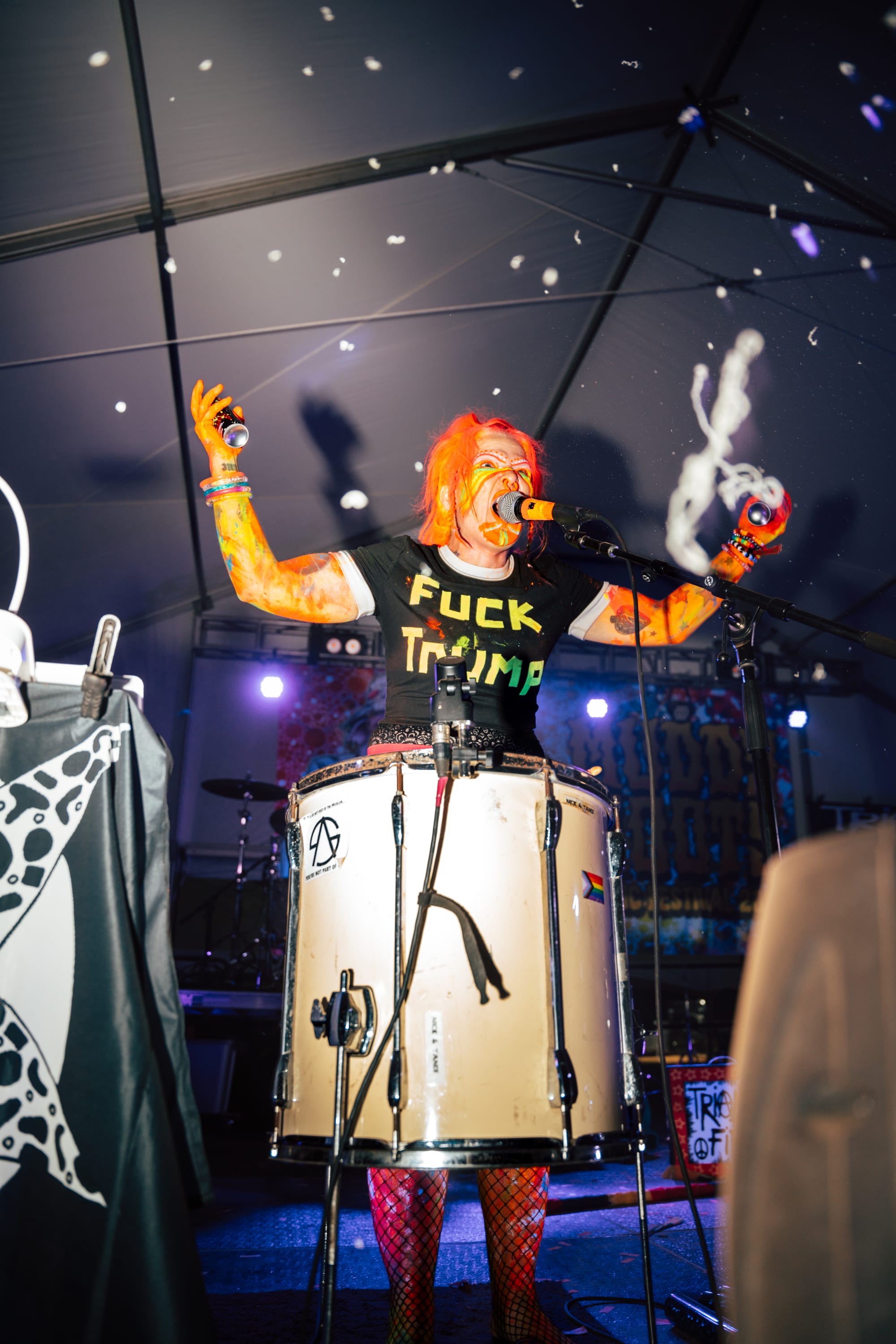
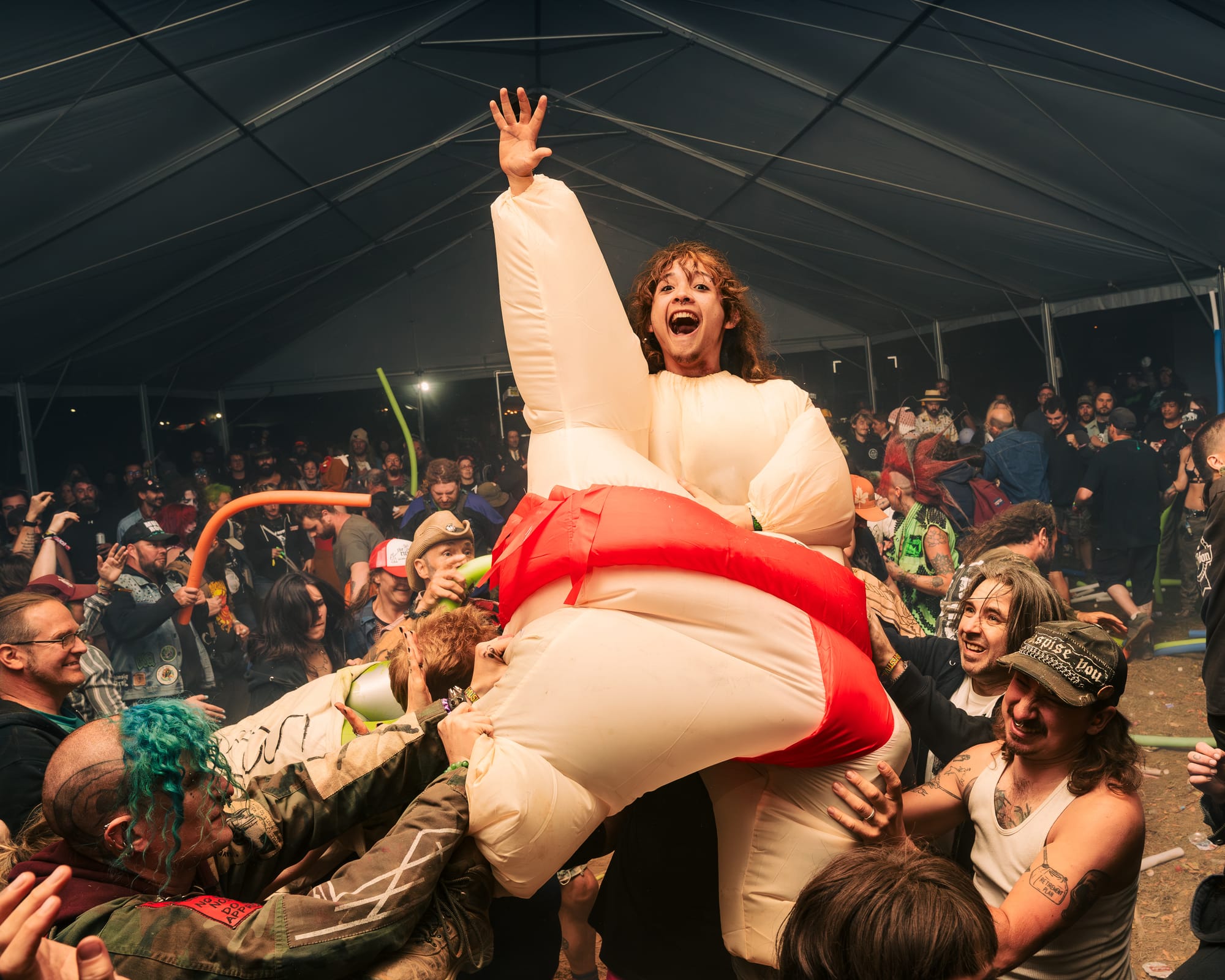
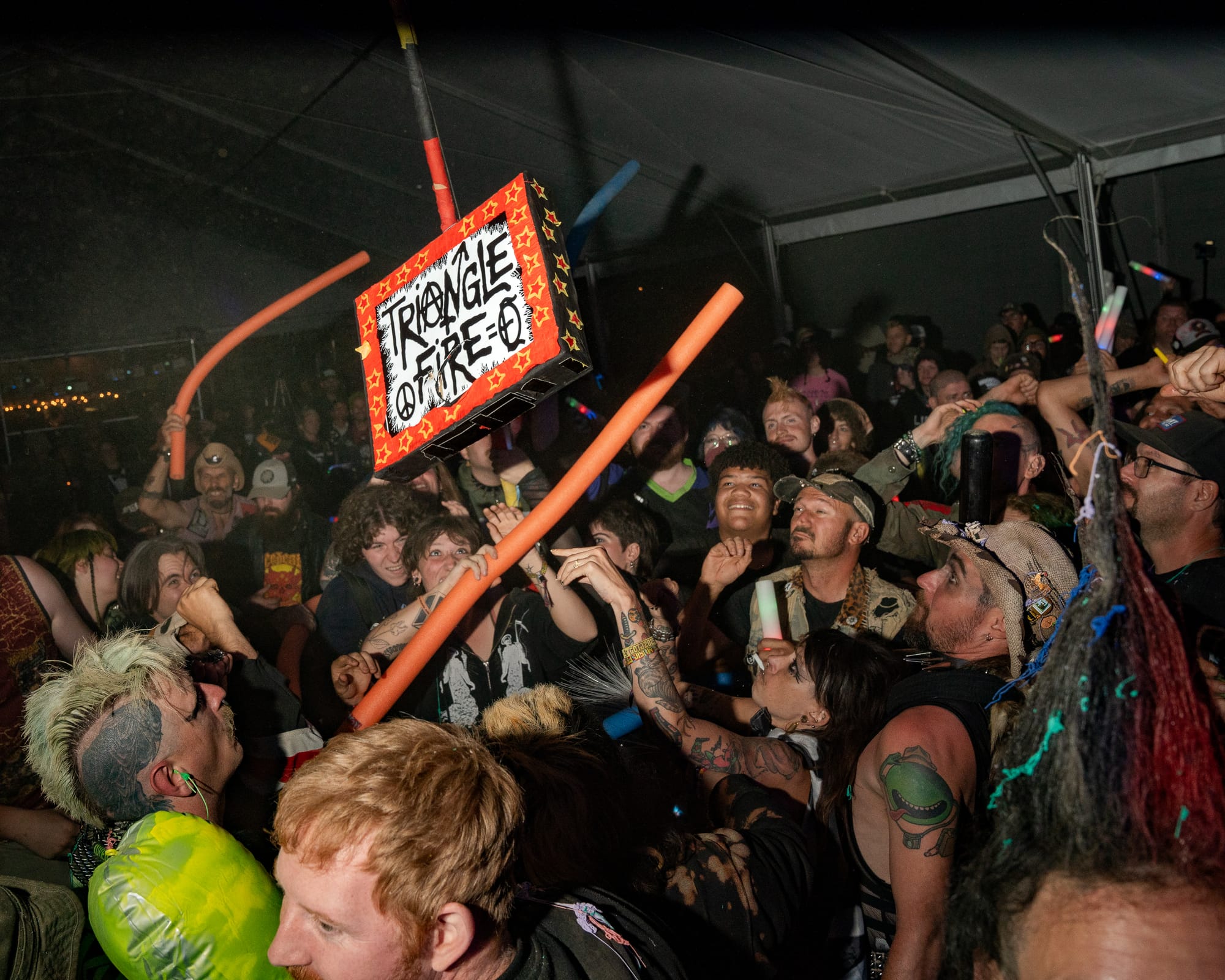
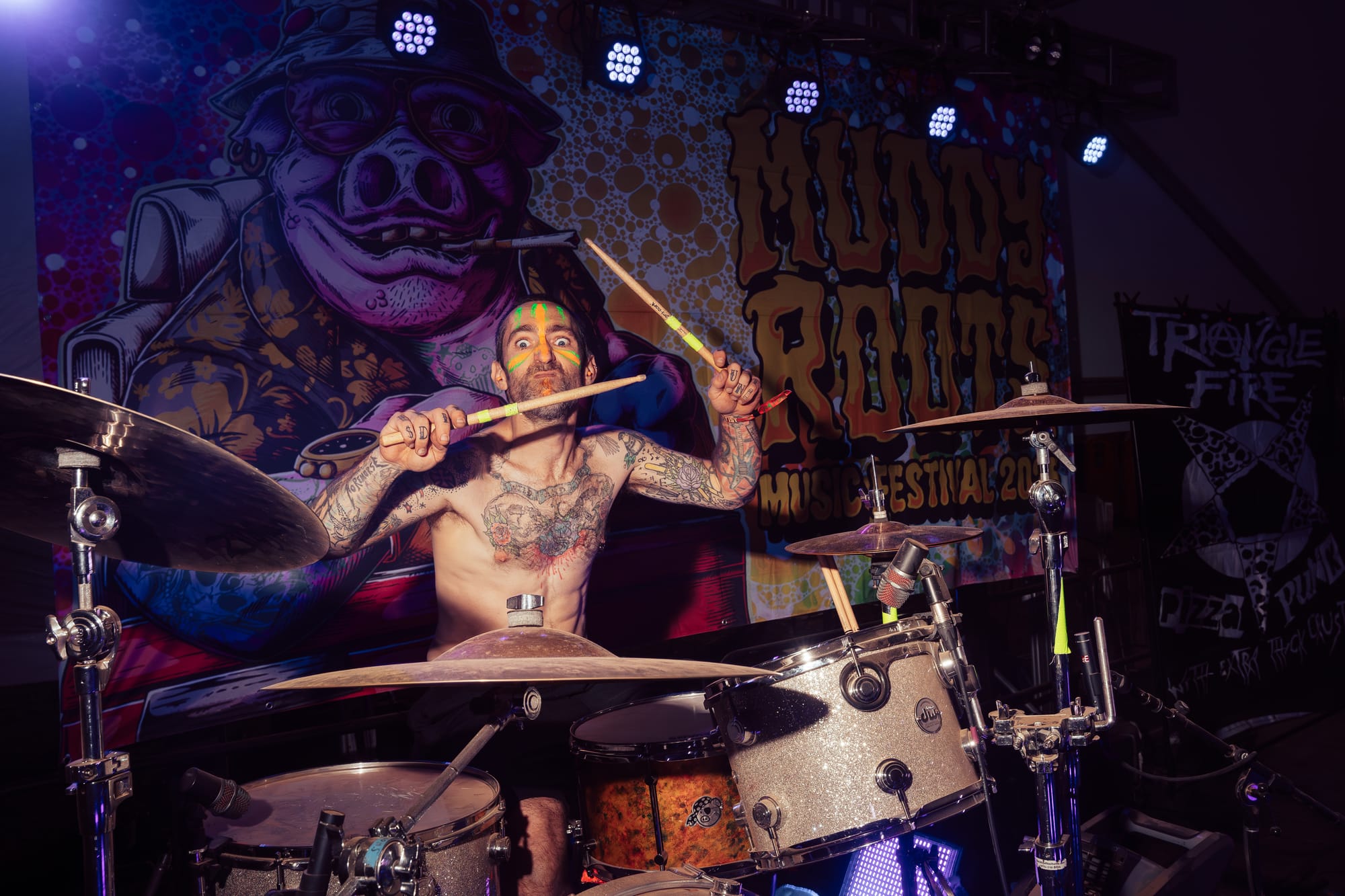
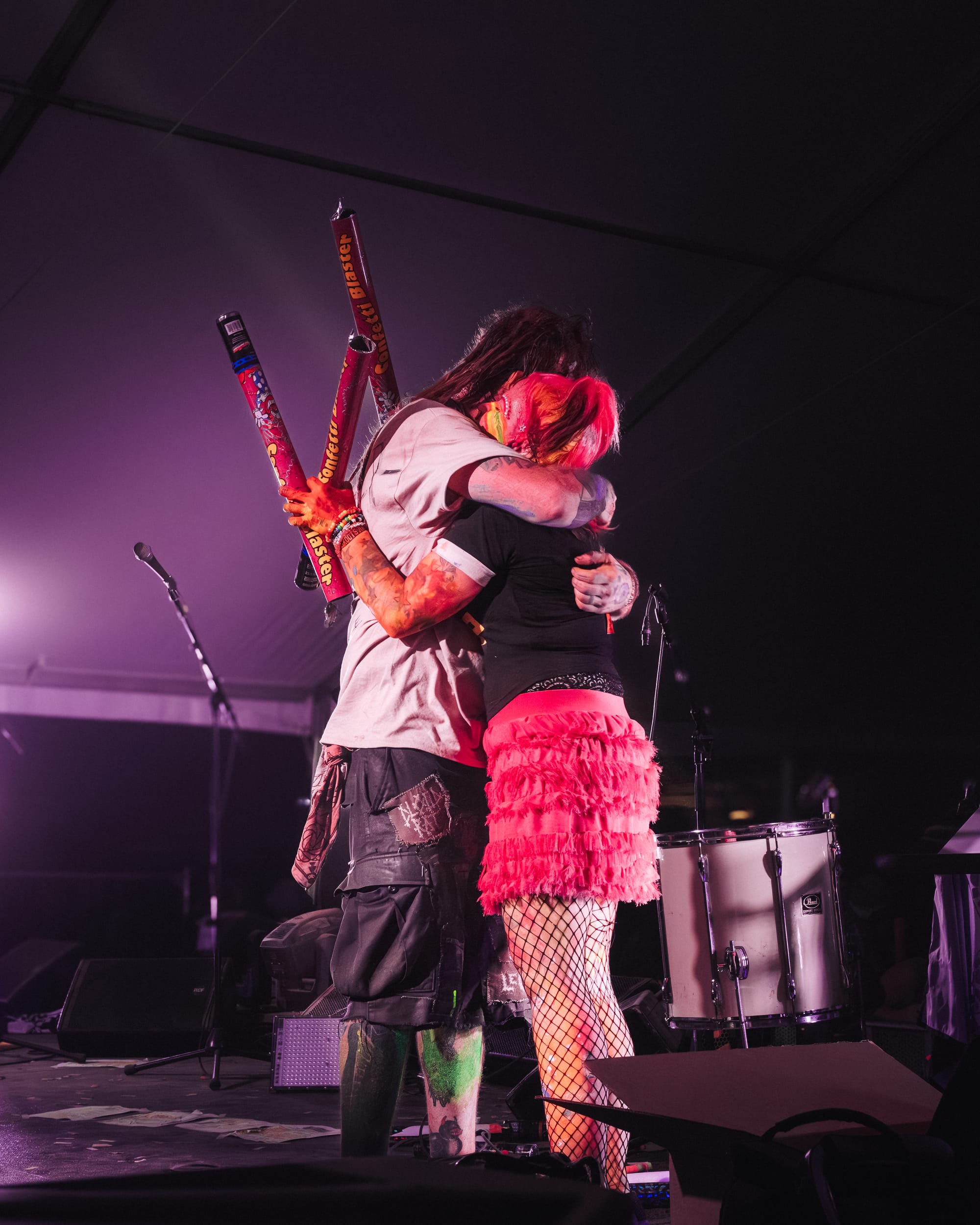
Triangle Fire by Chase Abigt
As the heat of the day came to its peak, I found myself strolling vendor row to pass the time till The Koffin Kats were to take the stage. Everything you could want to buy was there — stickers, patches, records, upcycled clothing, everything. Not only was the gear sweet, but so were the vendors themselves. Everywhere you looked, you would find people smiling and enjoying themselves. As the time came, I slowly made my way to the barricade for my most anticipated performance of the weekend: The Koffin Kats. Having seen them only a few weeks before, I knew what to expect, but this band is one of the few I have seen that still brings enough energy to the crowd to put any stadium show to shame. I had the honor of sitting down to interview them.
The Koffin Kats
What is more punk than spinning around on an upright bass and singing about death? Nothing! These cool "kats" come from the Motor City — Detroit, Michigan. Since their formation in 2003, The Koffin Kats have found success both internationally and in the United States. With their over-the-top performances that include plenty of running, spinning, and a perfect dose of funny faces, thanks to Tommy Koffins himself, you are sure to leave their shows with a heartbeat over 110 bpm.
But what has kept them going through it all? Thankfully, I had the chance to sit down with the charming frontman, Vic Victor, and the mohawk man himself, Tommy Koffins, to get those answers. From horror, the love of performing, and more:
MSM: What is your favorite horror movie monster/killer - or the one that freaked you out the most as a kid?
Vic: My first experience watching a horror movie, before I had any comprehension of what that even was, was watching Texas Chainsaw Massacre. I was like 5, and I think seeing that at such a young age, seeing that Leatherface image just sticks with you. Leatherface has always held a special place in my heart. Jason [Vorhees] has as well. It will always remind me of staying over at friends' houses and staying up and watching Jason movies all night. Tommy doesn't really watch horror movies. He gets scared [laughs].
Tommy: I like Shaun of the Dead! Cannibal the Musical, I remember watching that a lot on acid.
MSM: What albums/songs have formed who you guys are today?
Vic: I can definitely say Pennywise's "Bro-Hymn" was a big inspiration for our live sets. We start with a chant style and end with a chant style thing. Bad Religion's "Infected" was an introduction for me to see that harmonies can exist in punk rock music. The Reverand Horton Heat's "Psychobilly Freakout" cause it was the first music video I saw on Beavis and Butthead with an upright bass. That really stuck with me.
MSM: What is the question no one asks but you wish they would?
Vic: If people were to bring you something to a show, what would it be? I will answer that...a pair of clean socks. On tour, having a pair of clean socks, brand new clean socks every night, oh man, that would be amazing.
Tommy: I would want s'mores cookies. I just recently found out I really like those.
MSM: So this isn’t the first time this field has heard The Koffin Kats, and it is far from the first festival you've all played. What keeps you guys coming back to this specific festival?
Vic: Muddy Roots, I really love the vibe of it. We have been very fortunate to be able to tour Europe many times and play many festivals. One thing we quickly discovered was that festivals in Europe were totally different than going to your Warped Tour, or really, your only festivals around were a corporate thing. There wasn't much personality in these festivals you would go around to in the States. Then, when we started playing in Europe, we were playing all these festivals where they have this self-governed system, and everybody is cool. It's just fun, open atmosphere. All these different kinds of music and people from all walks of life. Everyone is just there to have a good time. And Muddy Roots just captures that. It has that energy that we've discovered in European festivals. That's one thing we look forward to playing here, which is that you sort of get to escape the everyday world. You are kind of in the middle of nowhere.
MSM: Koffin Kats has been around since 2003, and a lot has changed in the world and within the band since then. How has the band adjusted to that change?
Vic: The band itself, our one thing we all agreed upon, no matter who was in the band, was that Koffin Kats didn't want to be the band that divided people. We wanted to be a band, much like Muddy Roots, where people can come to hang out if you are cool. In the sense that you aren't a [bleep]head. We welcome all the freaks, all the weirdos. We've always strived to express that energy in lyrics, in the way our music is, and get that vibe out there. Really, that is all the kind of vibe that we do in our music writing, our content, and the opinions we express.
MSM: Psychobilly isn’t exactly the first thing that comes to mind when someone thinks of rock/punk. Would you all like to see it become a more popular sub-genre?
Vic: Absolutely! We always like to think we are psychobilly at heart, but we do a really bad job at representing it. There are so many bands out there that do such a fantastic job of representing what psychobilly is. We are just kind of a mutant child of it. We are just products of where we grew up and the music that shaped us. From Motorhead, The Stray Cats, to Bad Religion, and California punk is what gets us going.
MSM: I had the honor of seeing you guys perform and open for The Aquabats in Nashville earlier this month. I couldn’t help but notice the amount of energy that is shared on stage. How do you keep that energy and excitement on stage, especially with being on long tour runs?
Vic: We have fun! And we made some personal choices some years back to really be able to have our bodies give us as much as they can and be present in the show. To do the best that we can to be as focused and locked in as we can to give people a show. Something that they paid money for. Unfortunately, ticket prices aren't getting any cheaper, and there is only so much say we have in that kind of stuff. We know what it's like to get a paycheck every week and go, "Well, my budget sucks." To some degree, that is still the life we are living too. Rock' N' Roll doesn't pay the bills like it used to. We are from that life, so when we go up there, we are like, "Man, these people are paying money to see US." You just have that energy. You can't help but have that energy. At least for us, and I think that is why we just vibe so well, the three of us, we are all in agreement that this is what you must do. There is never any whining about it. It's true.
Tommy: And no matter where you are in your life, crappy or good, as soon as that foot hits the stage, you aren't going to think about any of that. We get to cut loose and see the people in front of us enjoying what we get to do. It's a big honor for us to have people like us watch us.
MSM: After so many years, what still excites you the most about being in this band?
Vic: We feel like we are at the point where every time we go out, things get a little bit bigger and better. New opportunities have been showing themselves. We are just kind of here for the ride. We set our lives up some years ago to have the ability to get up and go when an opportunity comes up. As long as people are coming out to the show, we will keep going out on the road.
MSM: What can fans expect from The Koffin Kats in the near future - new music or any surprises?
Vic: It's very early, but I am embarking on a project for us that is essentially where we are recording our upcoming tracks in a way where if we could time-travel back to the early '90s and find ourselves in a studio. We are going to track in that way. In a very analog, old school, and see what happens. Try something new.
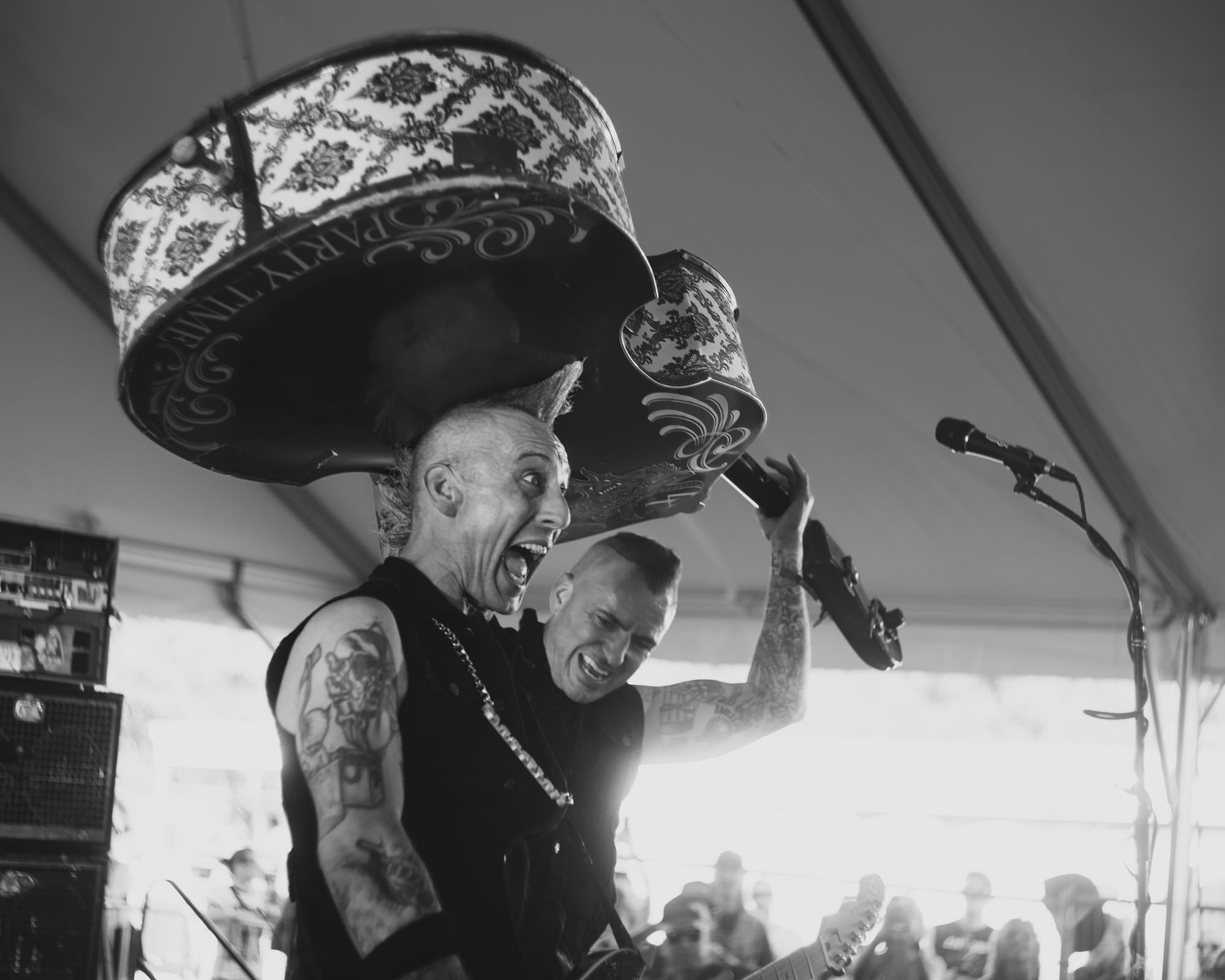
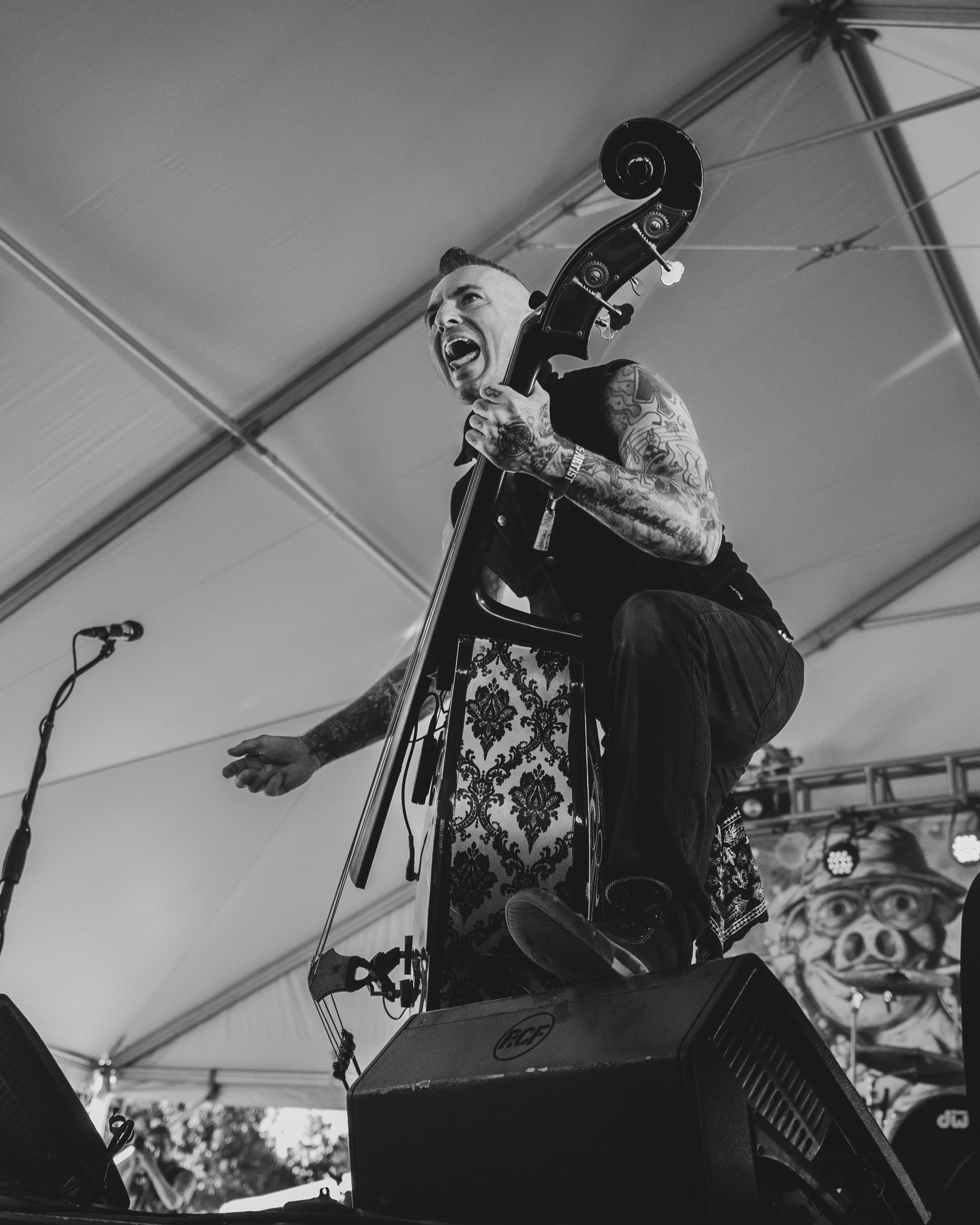
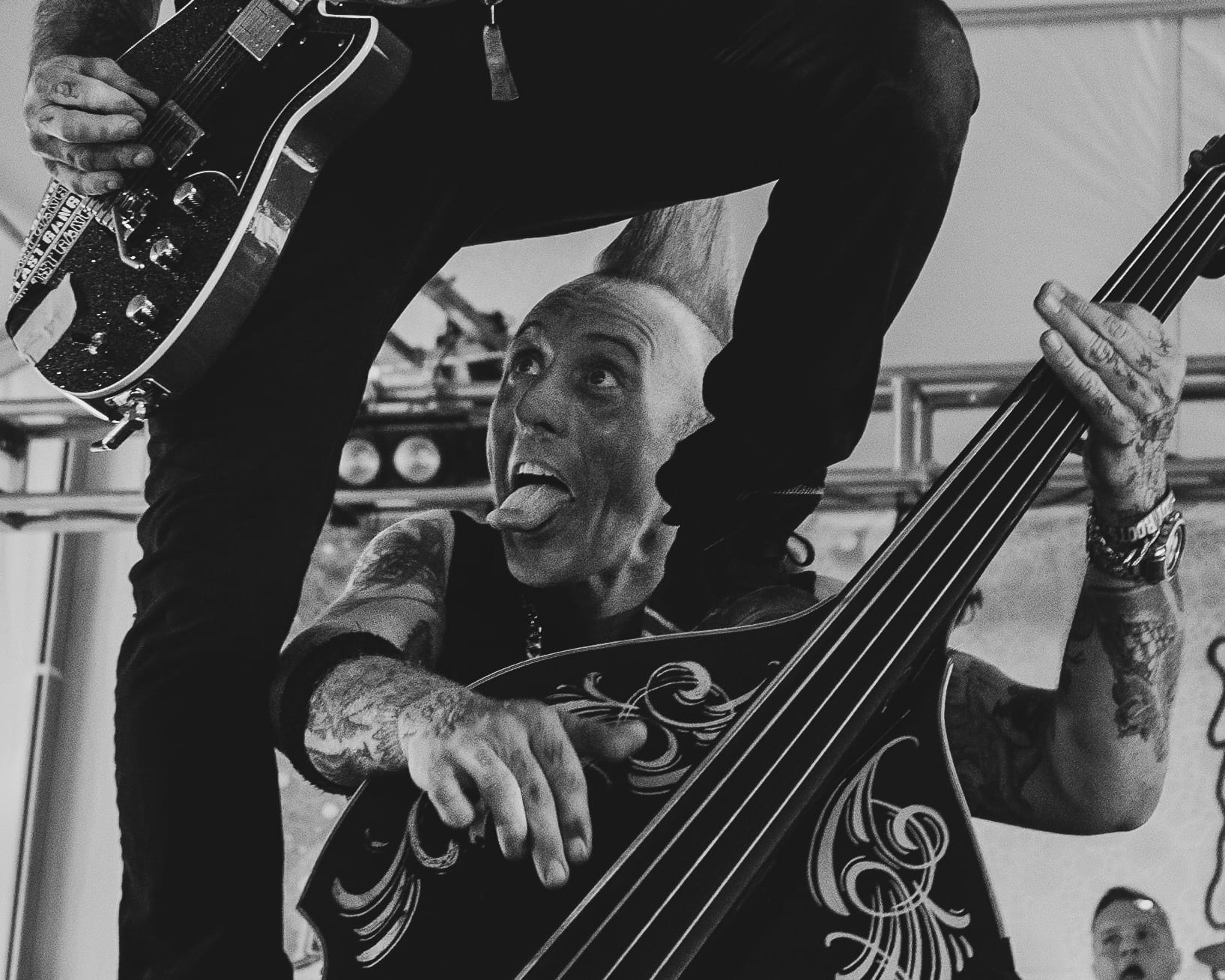
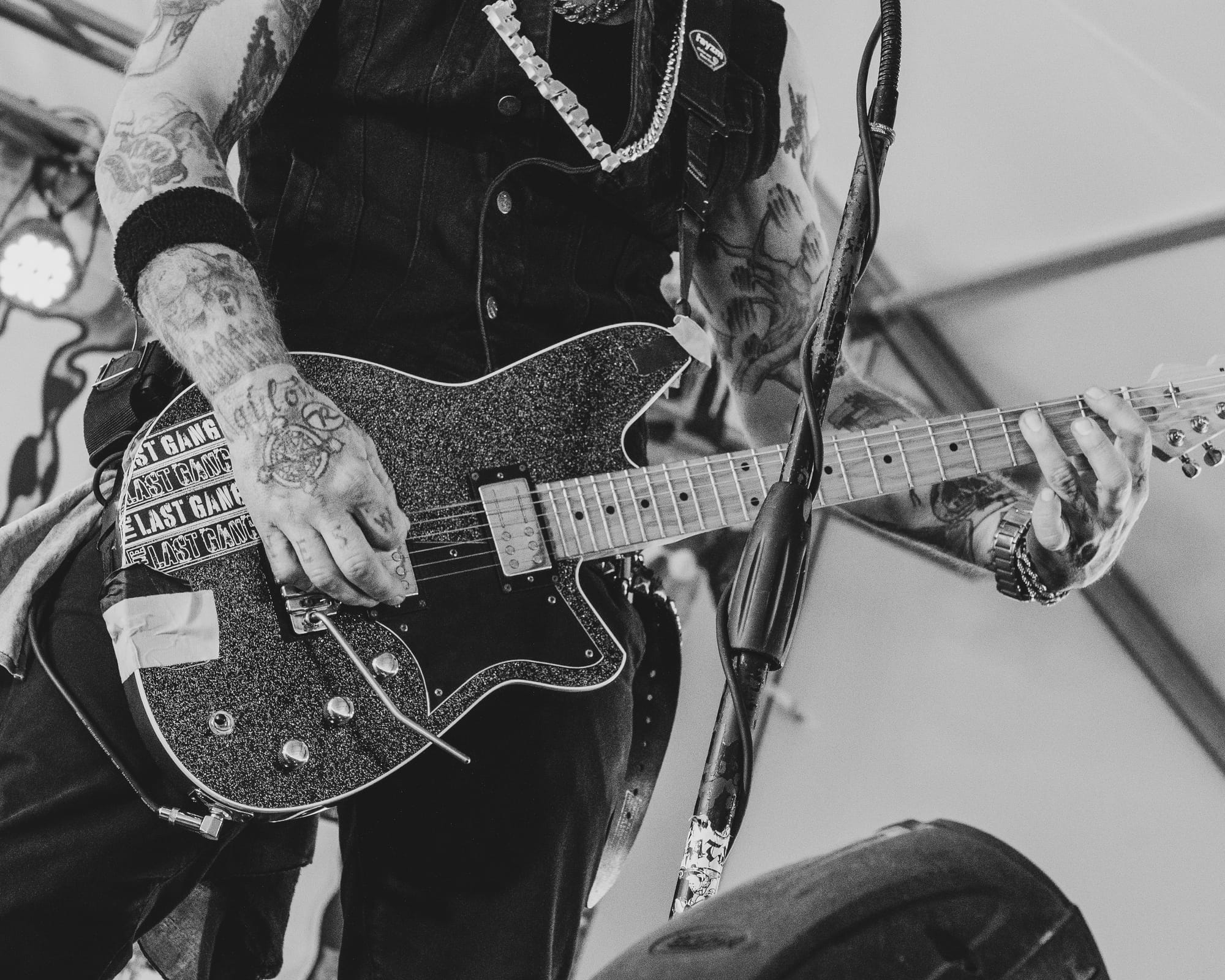
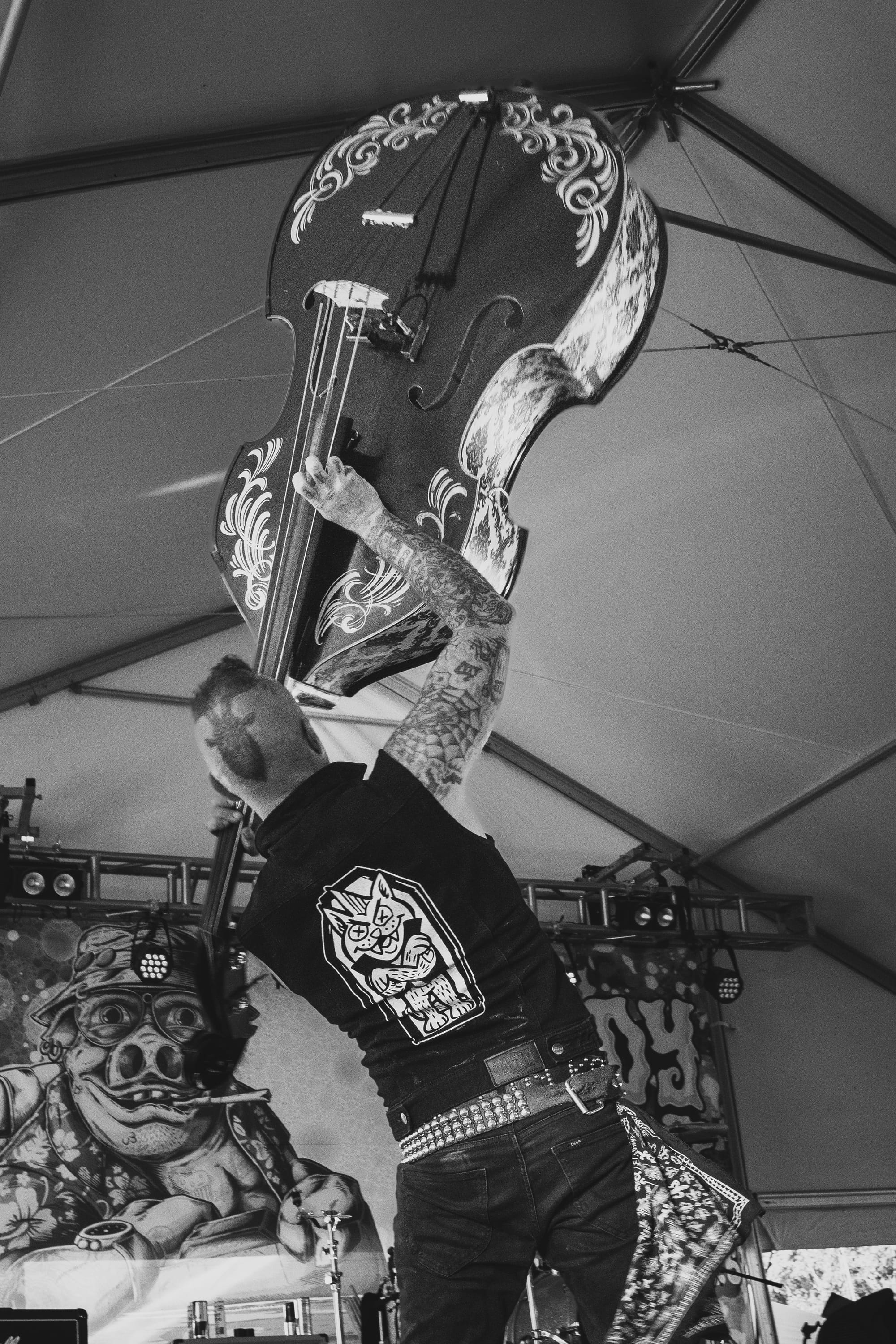
The Koffin Kats by Chase Abigt
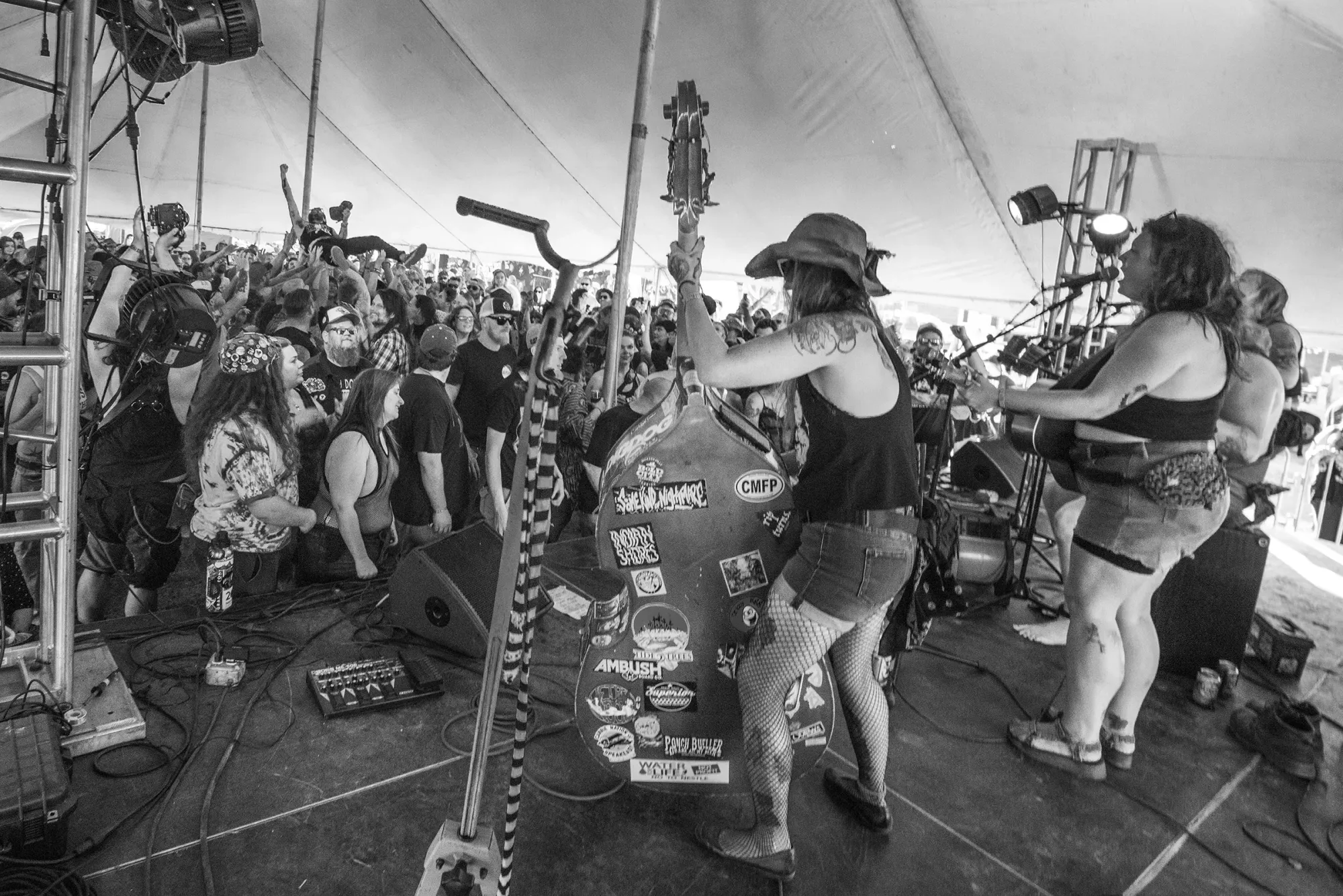
The rest of the night was a blur. From getting into a "clogging" battle during Angry Zeta (I won), to slow dancing with a shirtless man during Amigo the Devil, and inhaling a decent amount of silly-string fumes while headbanging to Triangle Fire, my mind slowly filled up with a thousand ways to thank Jimmy for telling me about this home for the wayward. The memories I made in those three days could never amount to a simple "Thank you."
The mind-bending talent that fills those stages every day, the vendors that keep our wallets empty and bellies full, are all amazing, and all add to the charm this field has for so many. But for me, the memories were made far away from the blinding lights of vendor row and the laughter of late-night drunks at the bar. Where the sagging leather met the grass, and the music comes from the heart, I built my own mental shadow box of this weekend in my own home away from home: Camp Boneyard, an oasis for all to sit and hear a stranger's heart call out to the wind. I found a group of people who, in Muddy Roots fashion, opened me with wide arms and accepted my quiet nature. People who made reminded me of just why music was so special and important to me.
Tales of hope, heartbreak, and being proud of who you are came and went with the night. As I looked up at the stars, tears in my eyes, I wondered how many people before me had looked up at those same constellations. How many of them felt this weird content feeling?
In a world where people like me, in many cases, have to build their own homes and make their own family, I had found it. Behind the treeline, under the stars, and somewhere caught between the verses of an unknown song was the home I had looked for those 20 years.
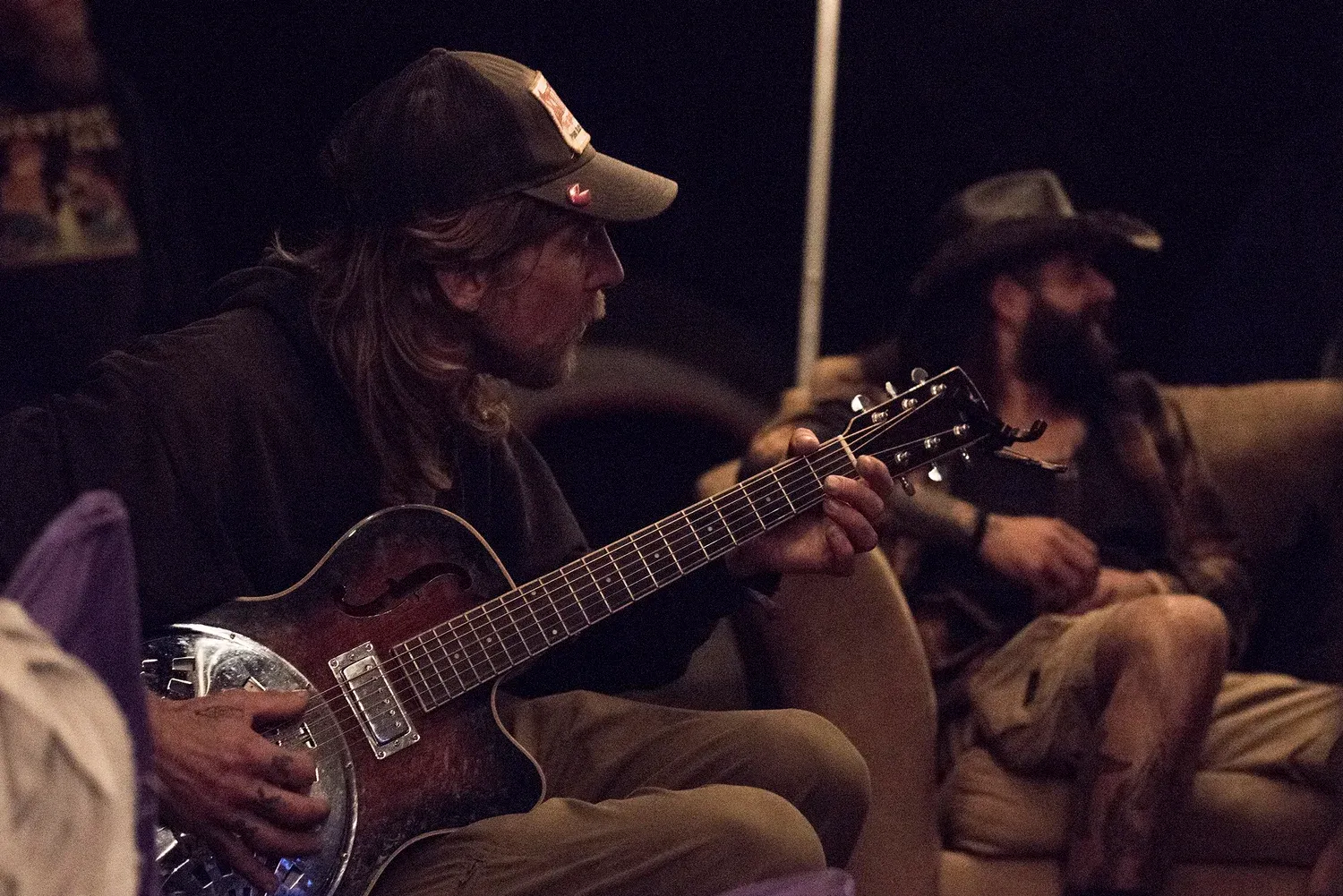
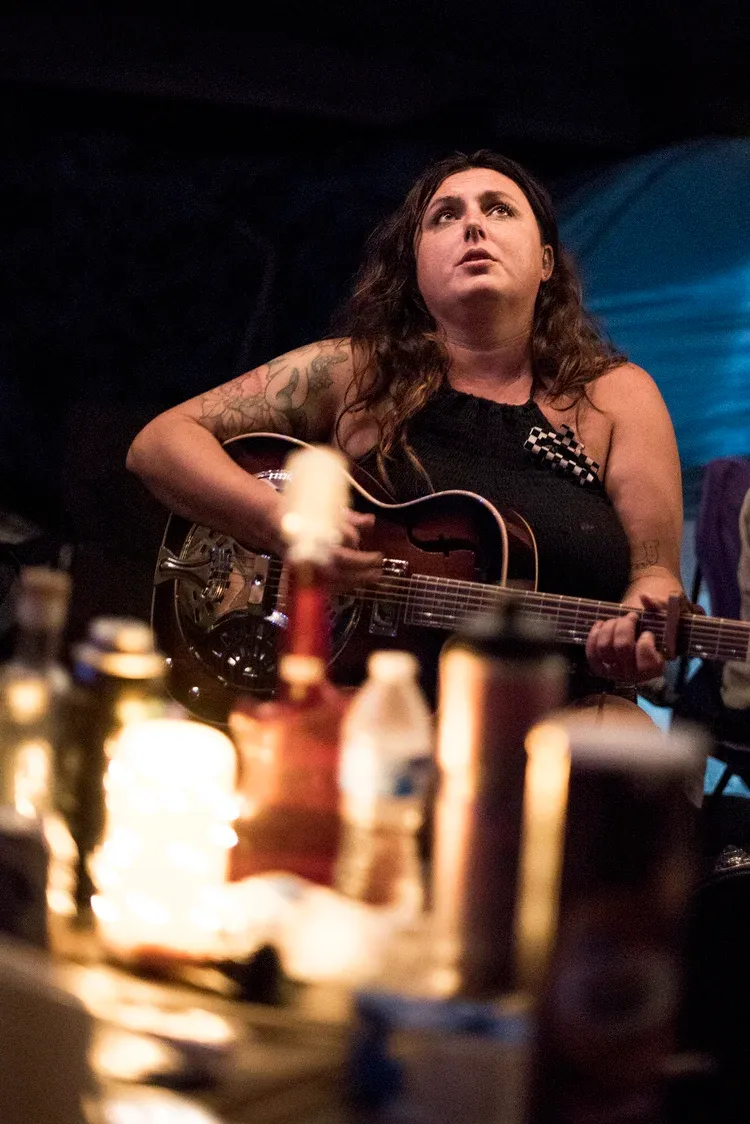
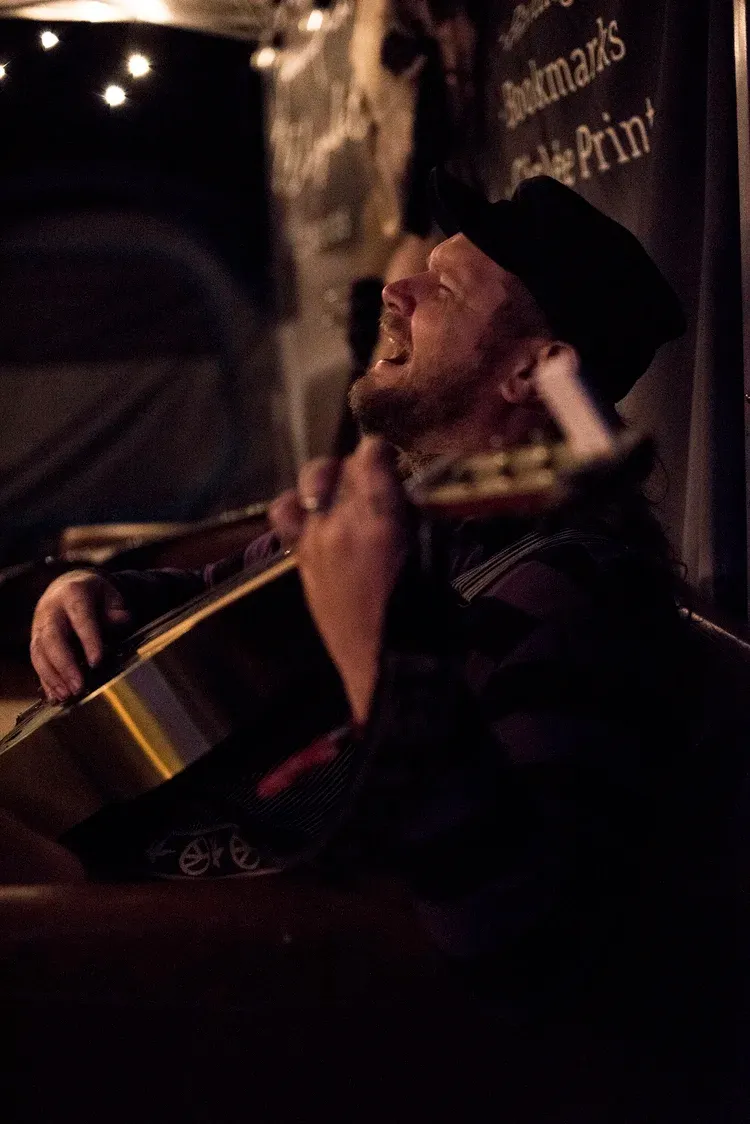
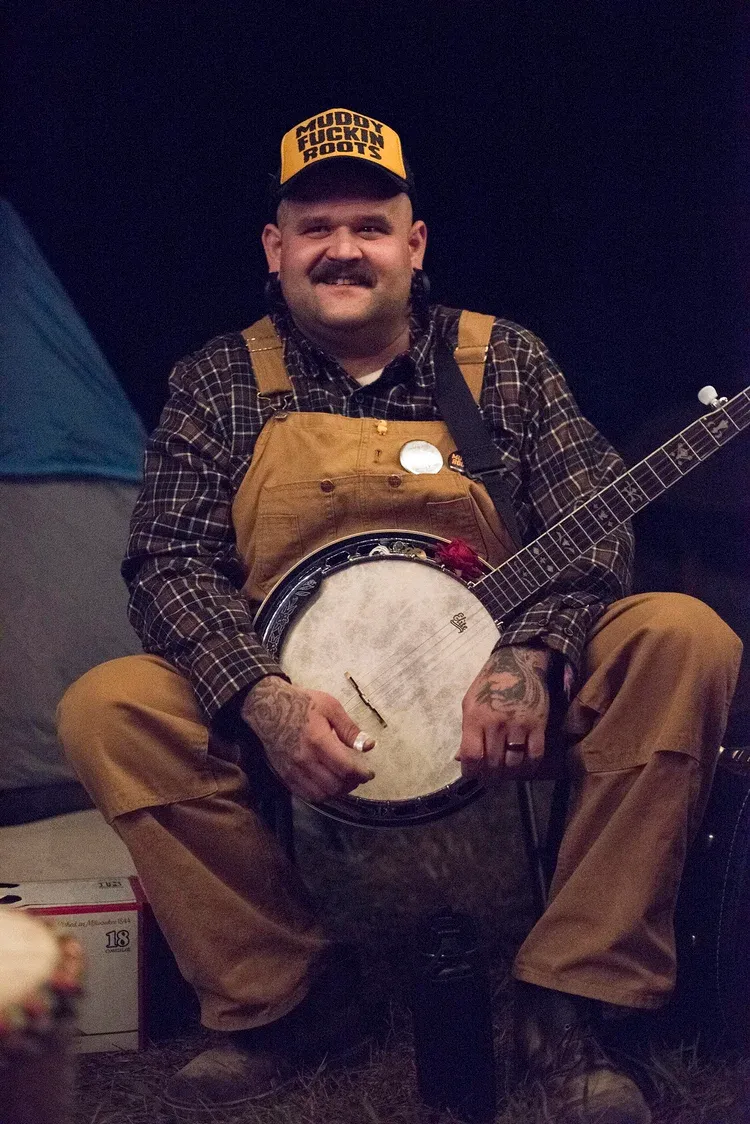
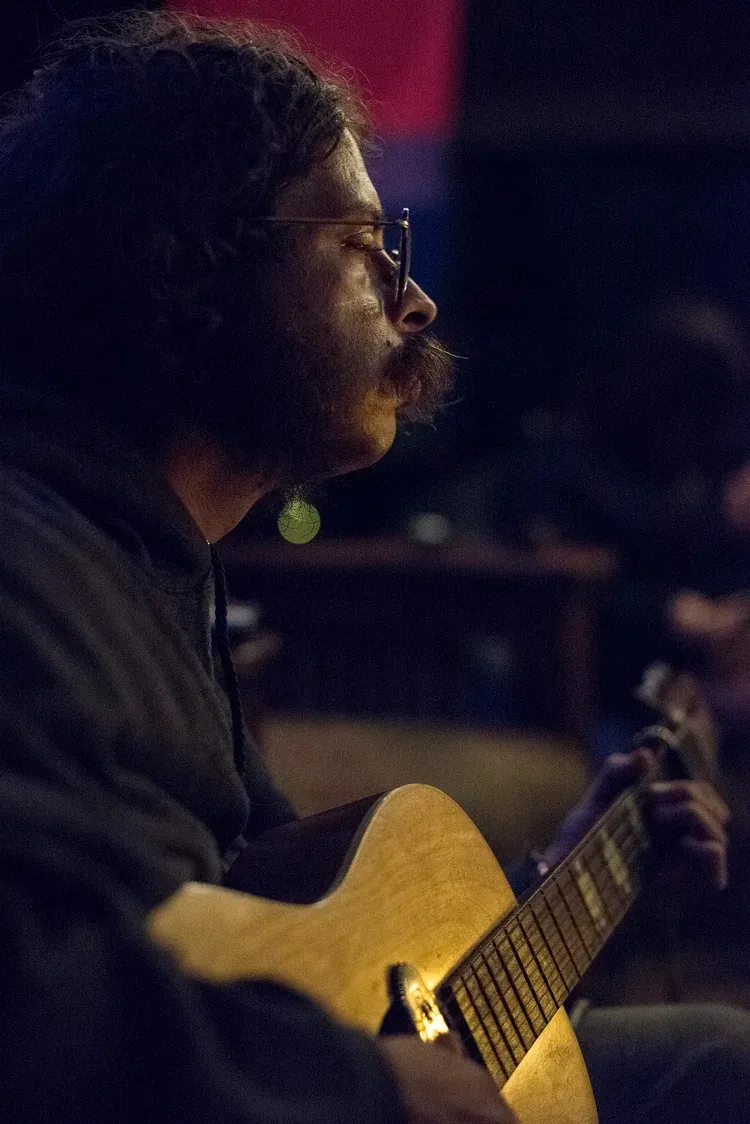
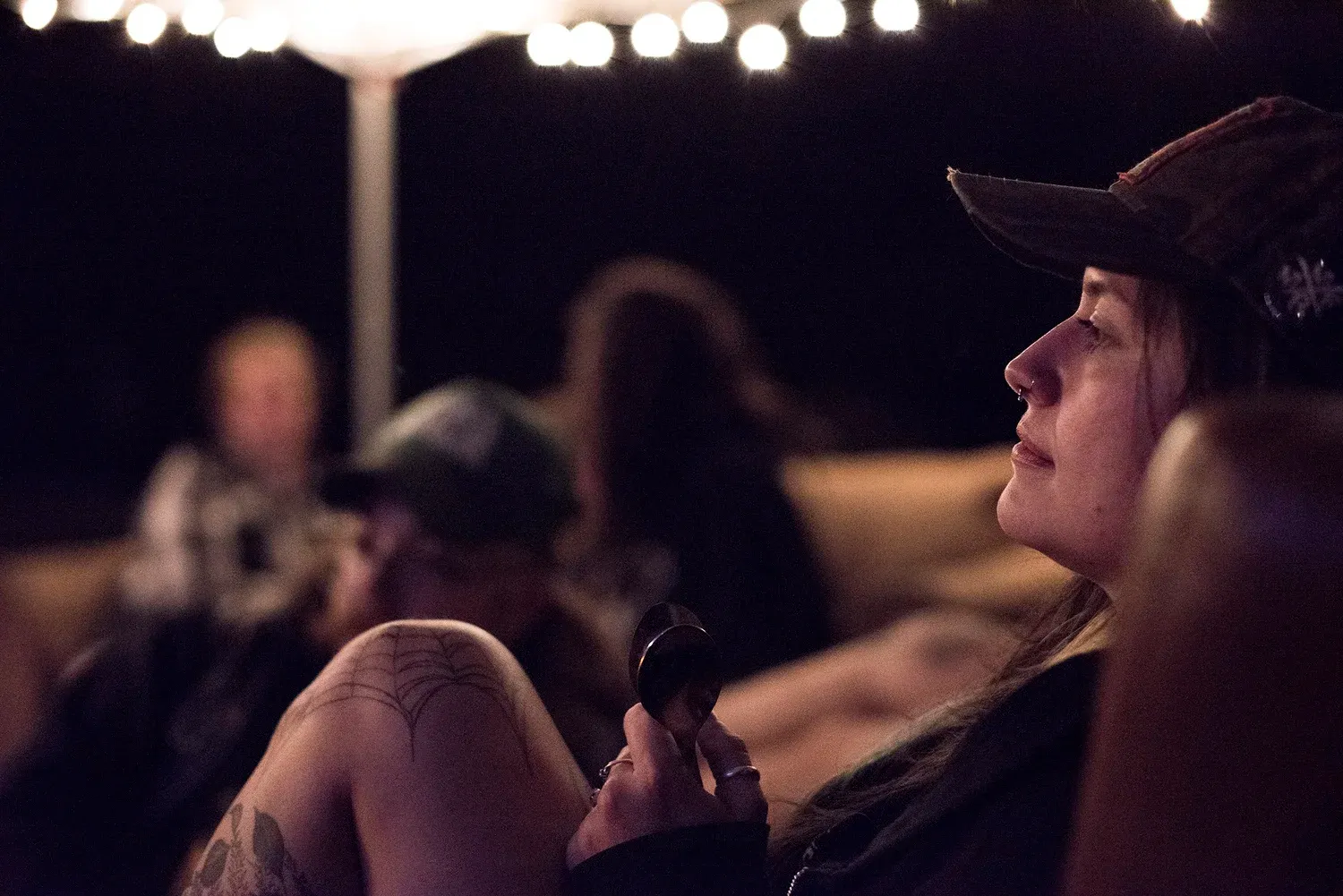
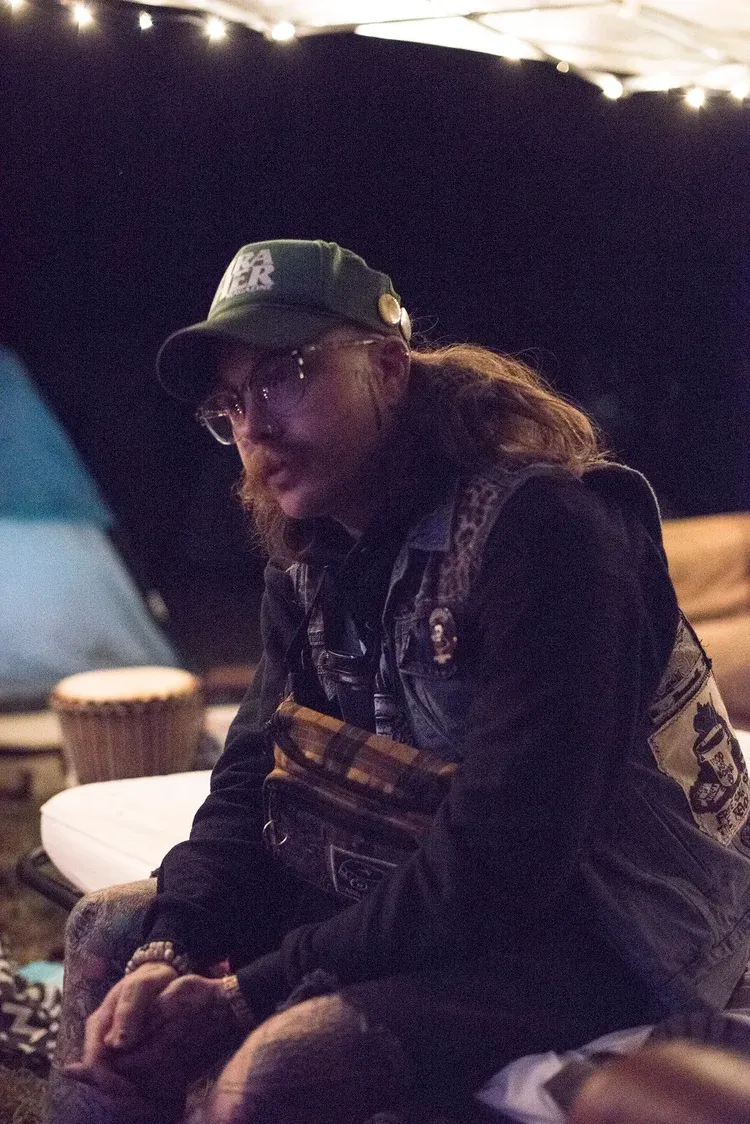
Camp Boneyard Jams (Shot by Todd Cotgreave)
A festival is only as good as the people it brings, and Muddy Roots is full of beauty. The Koffin Kats had a point: the people who attend this field every year have character, and boy, do they know how to party. But the main common interest for everyone who comes to this field, hidden away in a college town, is their love of music. No big corporate festival could capture the love and importance of music as this one does. I have never felt so supported by festival volunteers or attendees as I did at Muddy Roots. Everyone has your back as if you are one of their own. No matter race, sexuality, creed, size, or gender, you will be picked up and dusted off if you fall. See you next year, Muddy Fam!
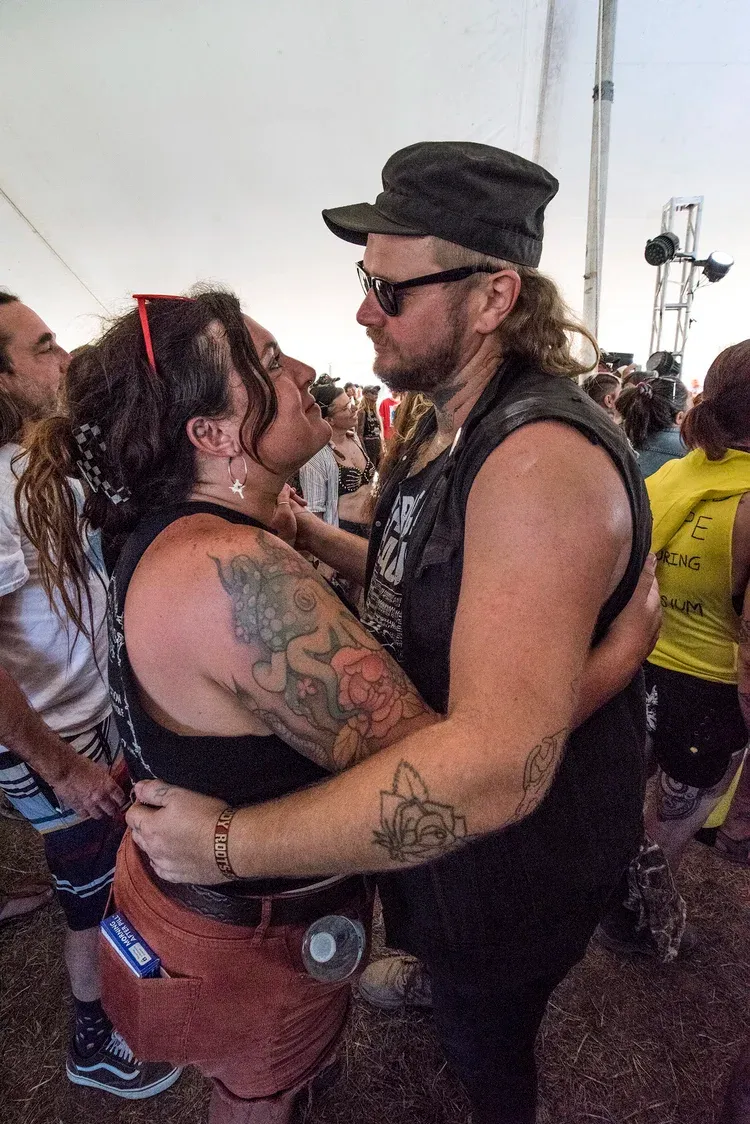
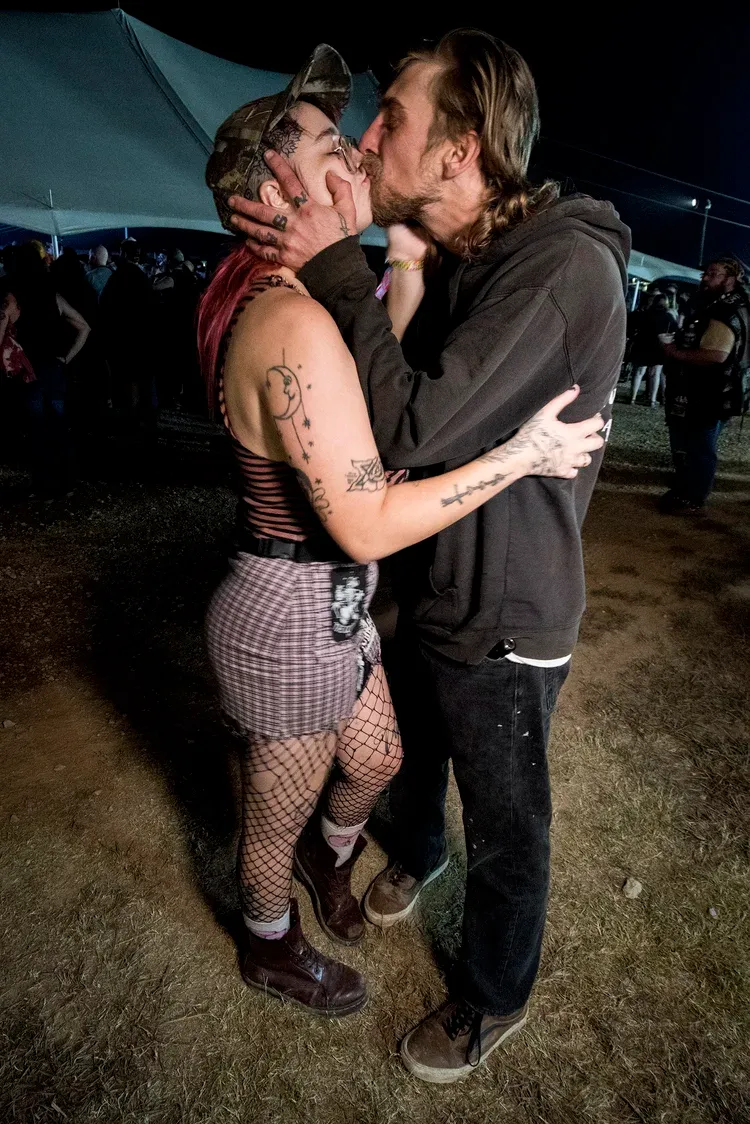
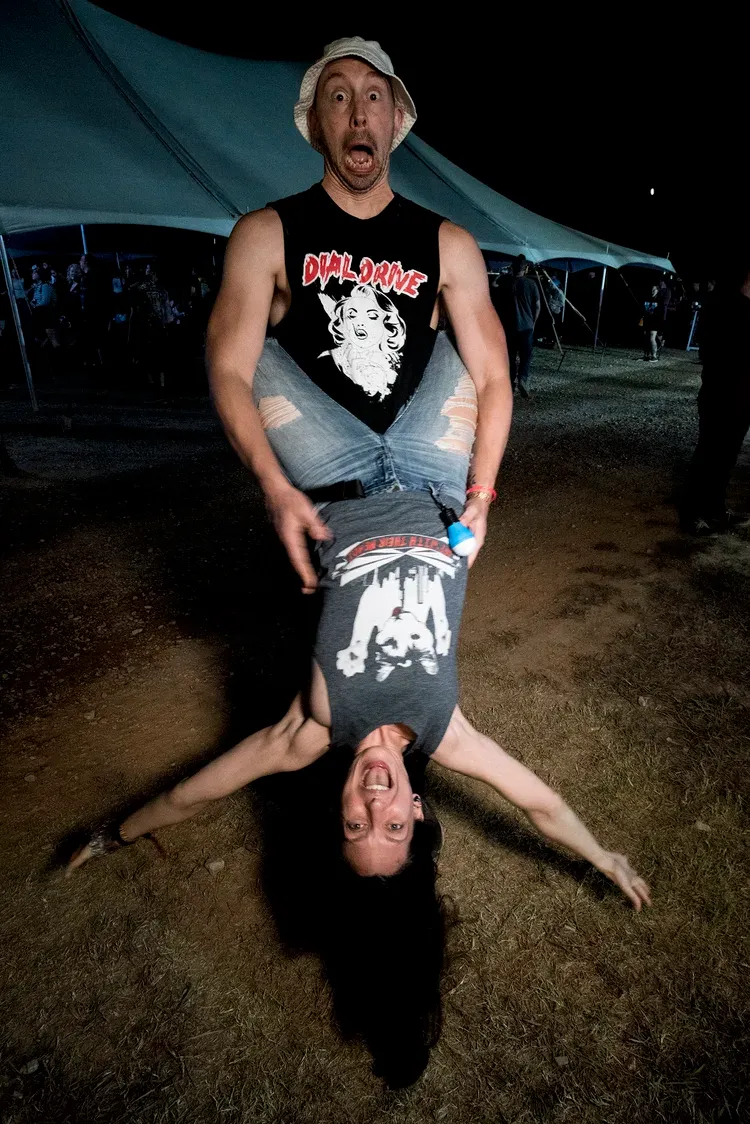
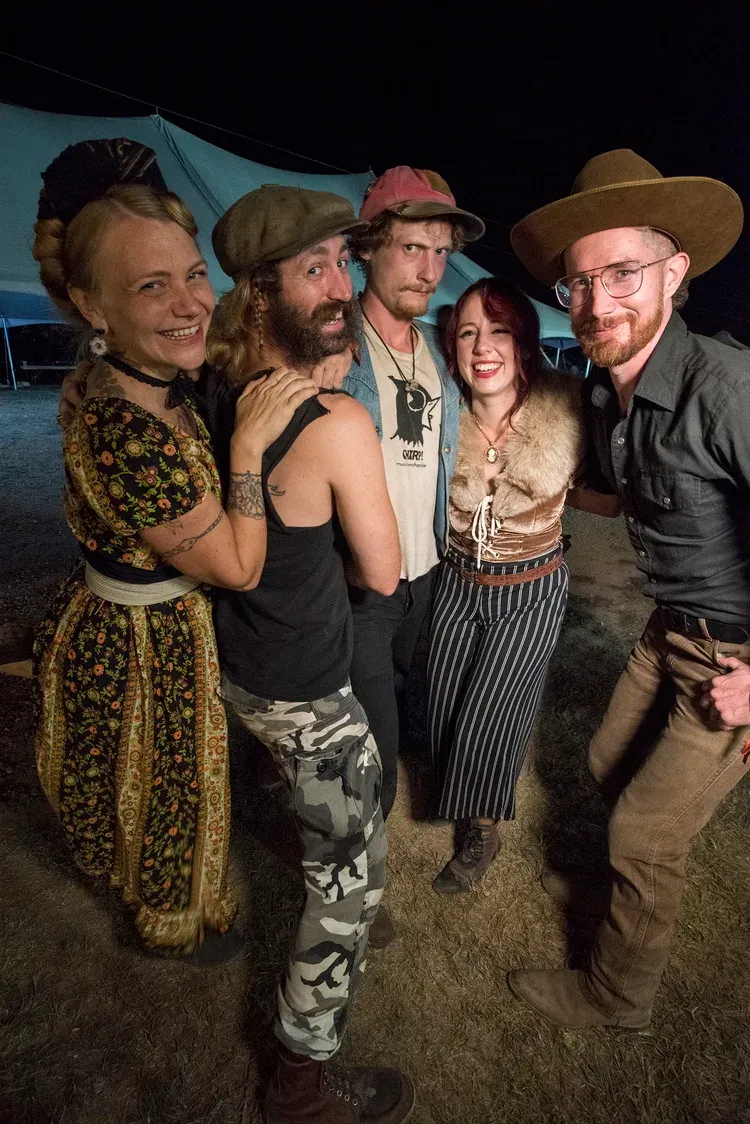
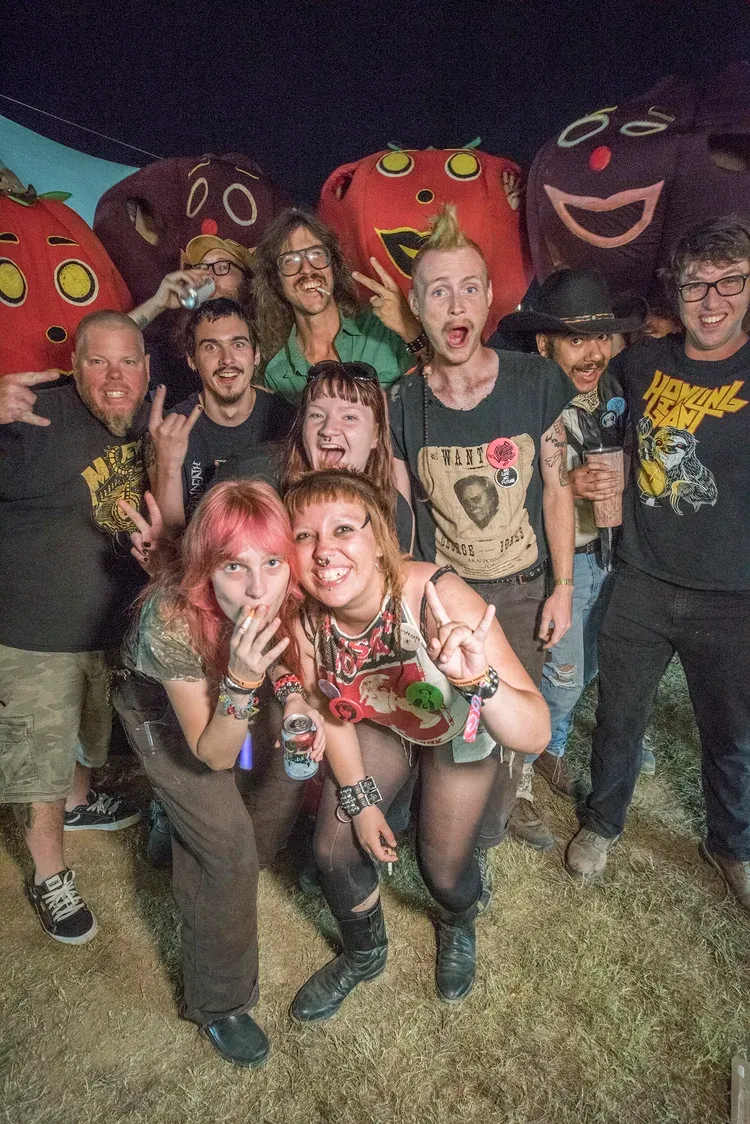
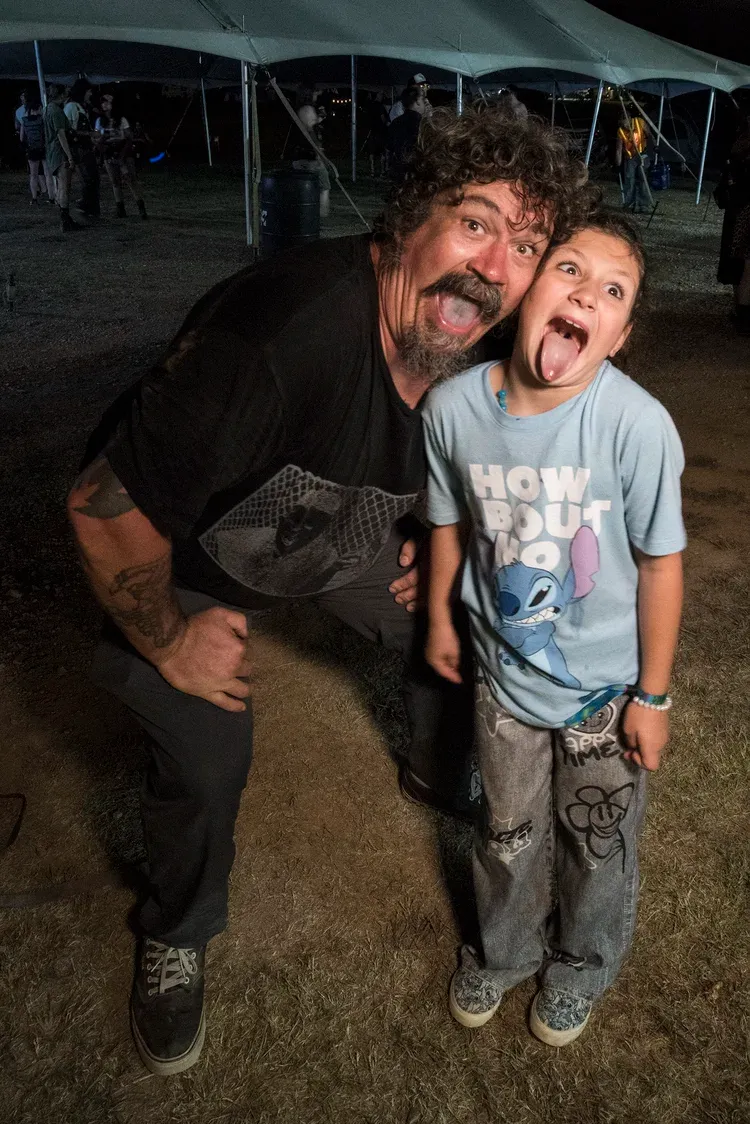
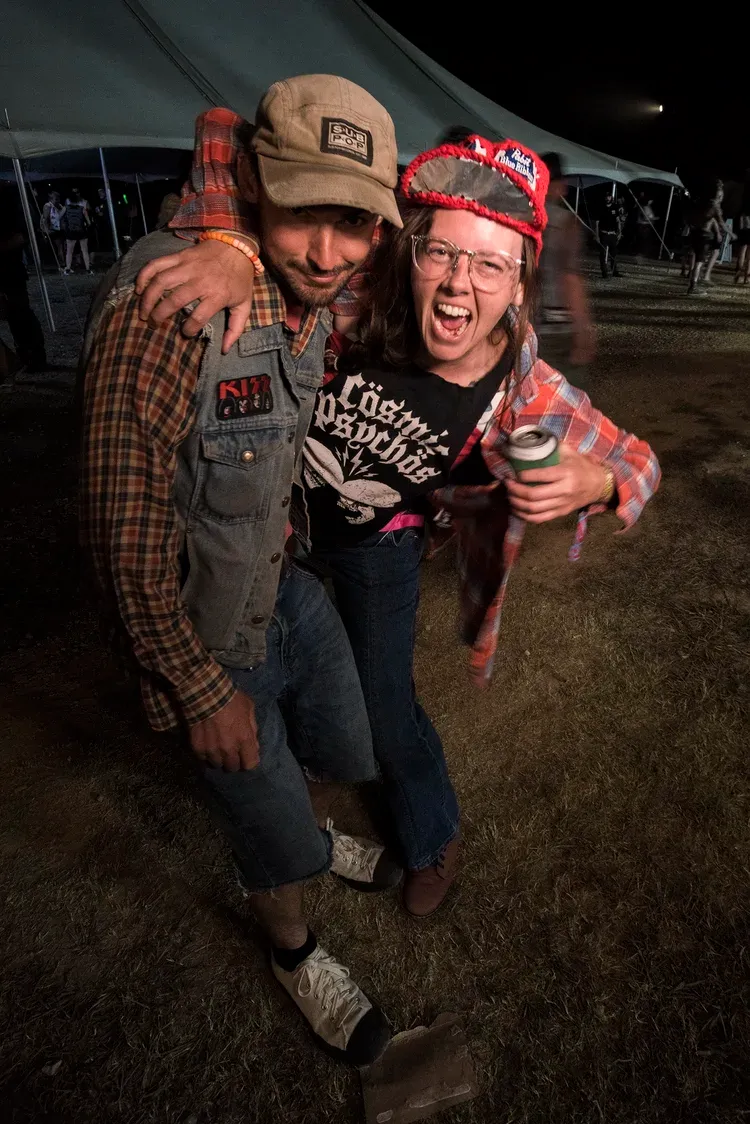
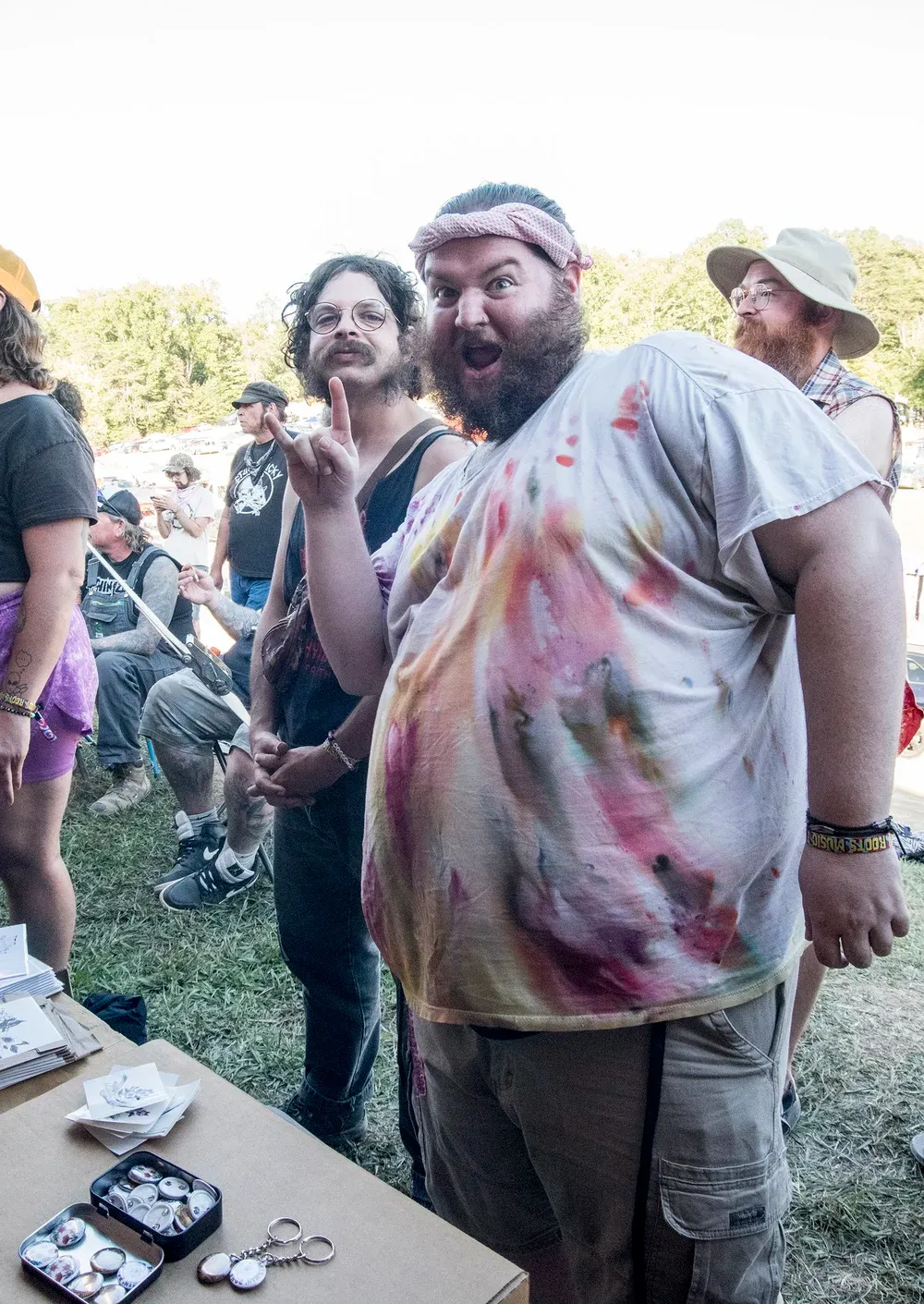
Shot by Todd Cotgreave
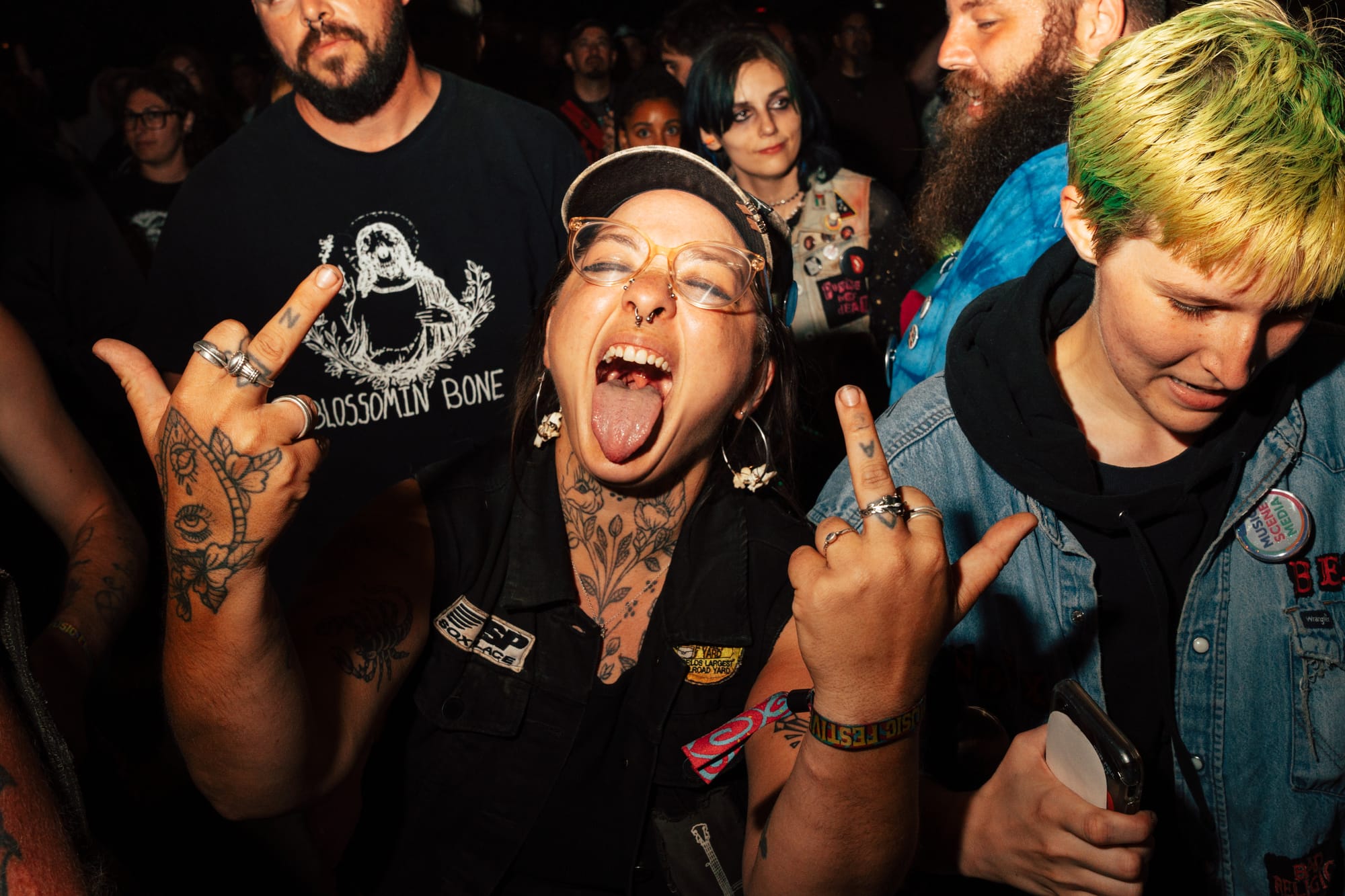
If you are interested in attending Muddy Roots in 2026, make sure to follow them on all their socials to stay up to date on announcements!
Instagram | Facebook | Youtube | Patreon
